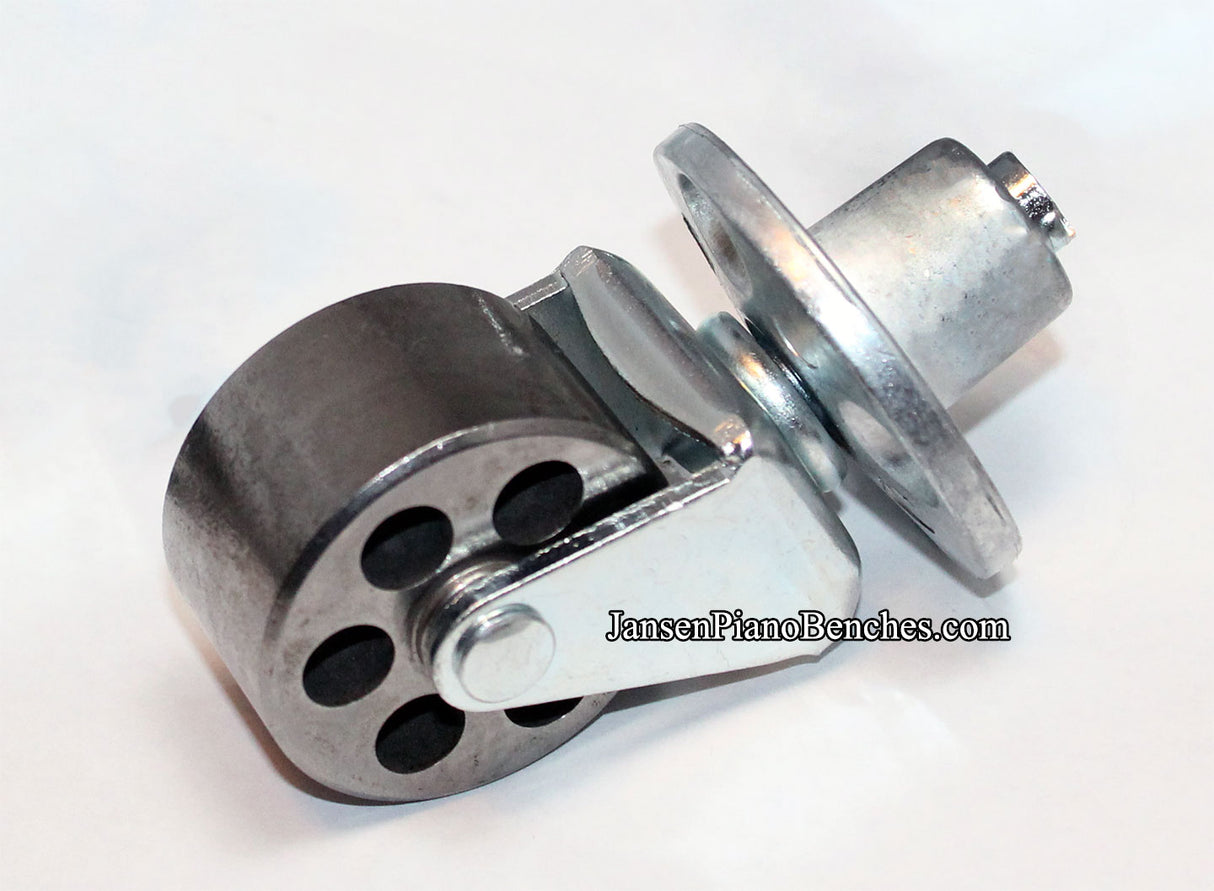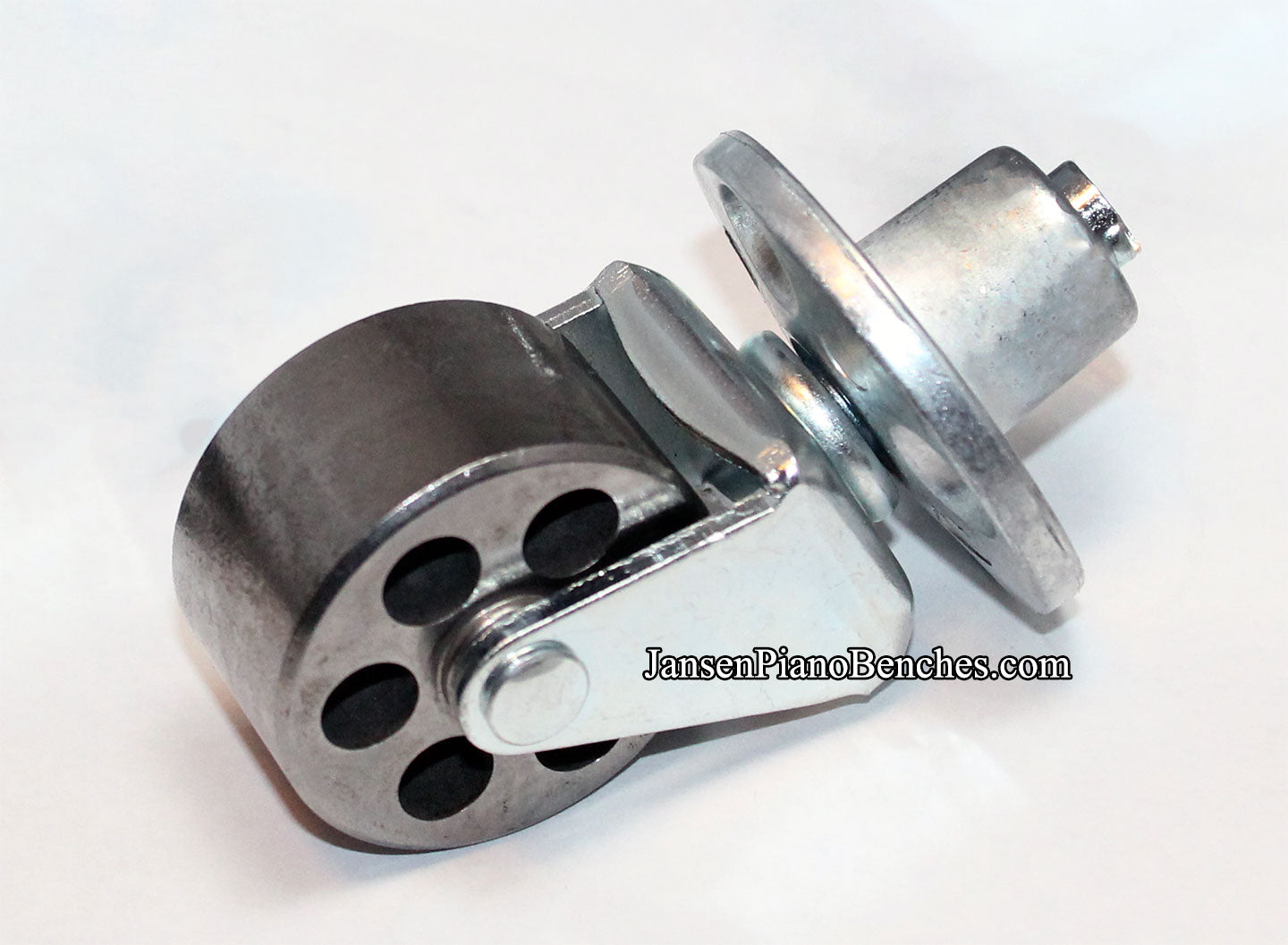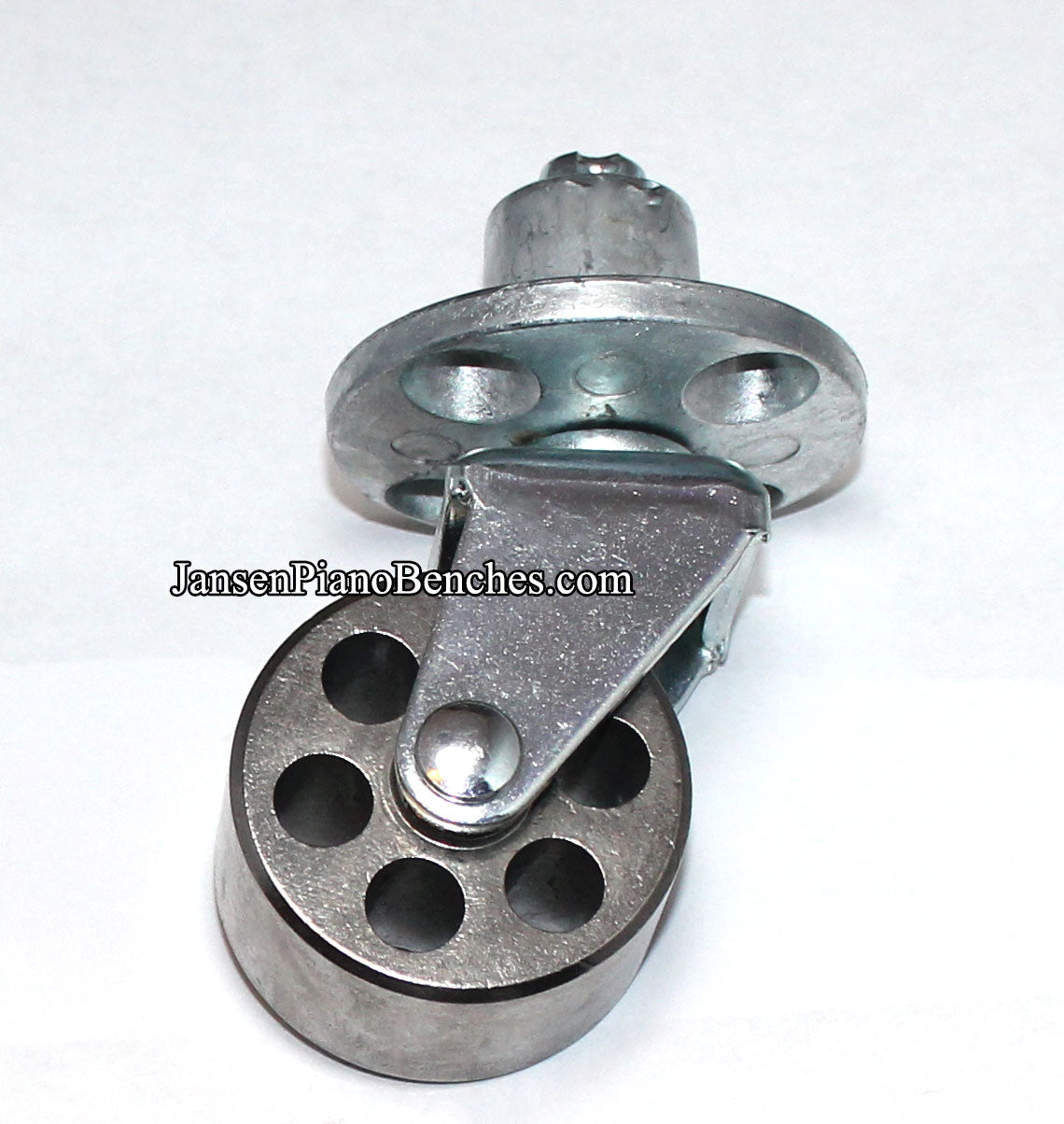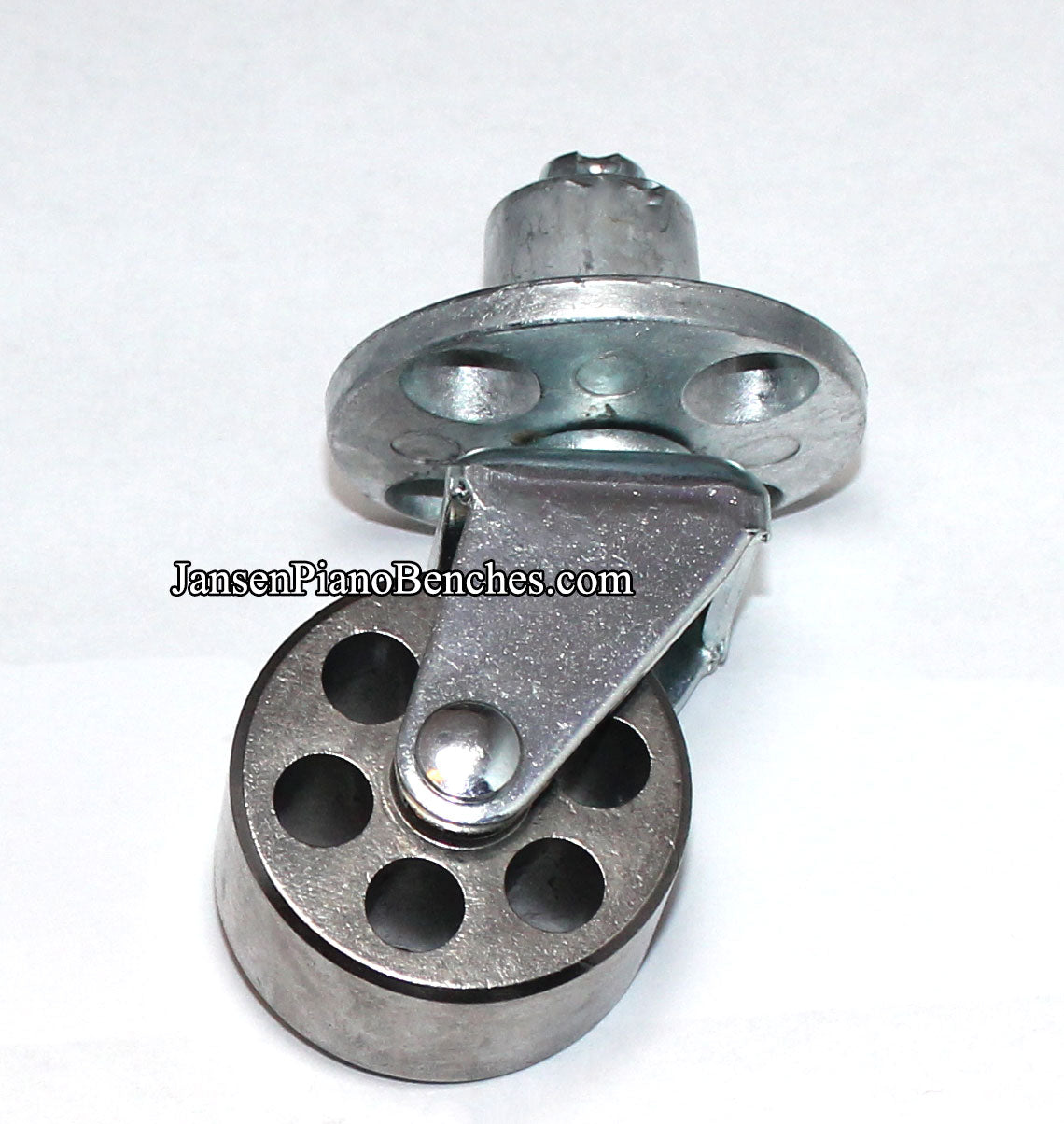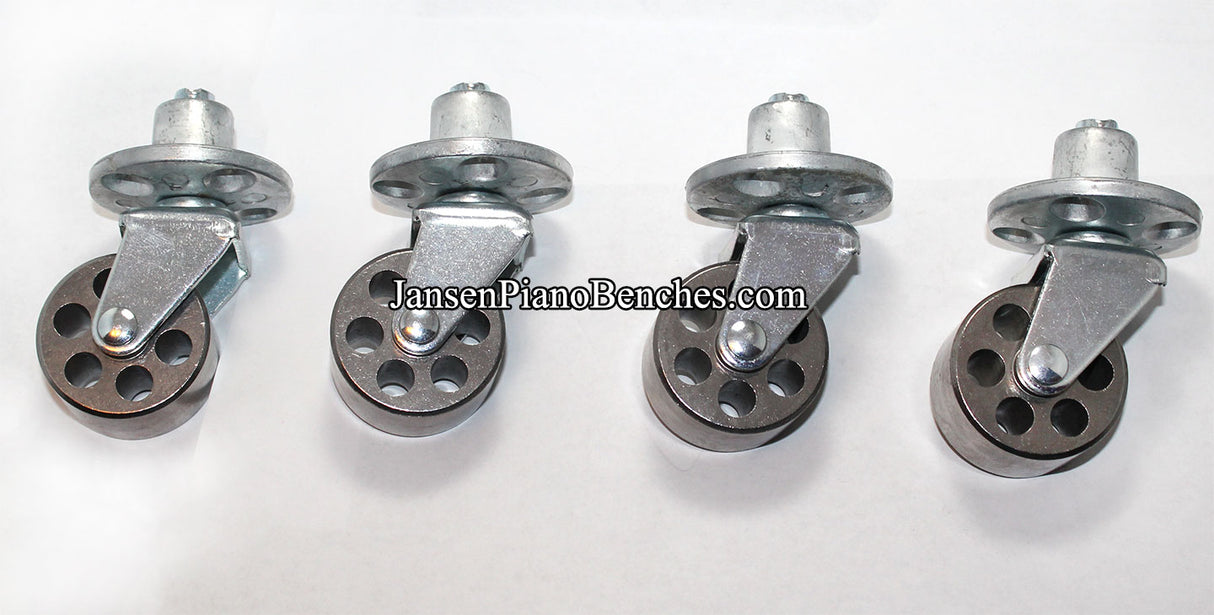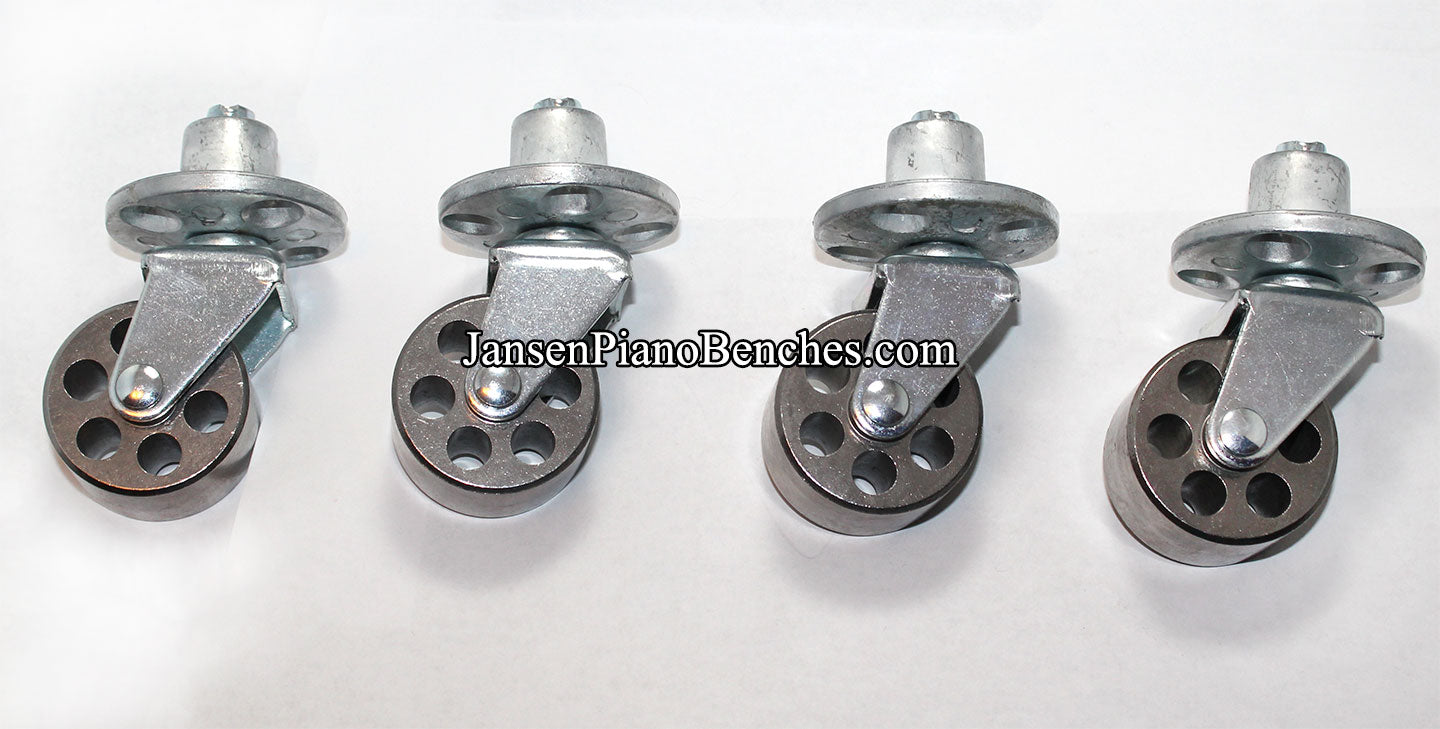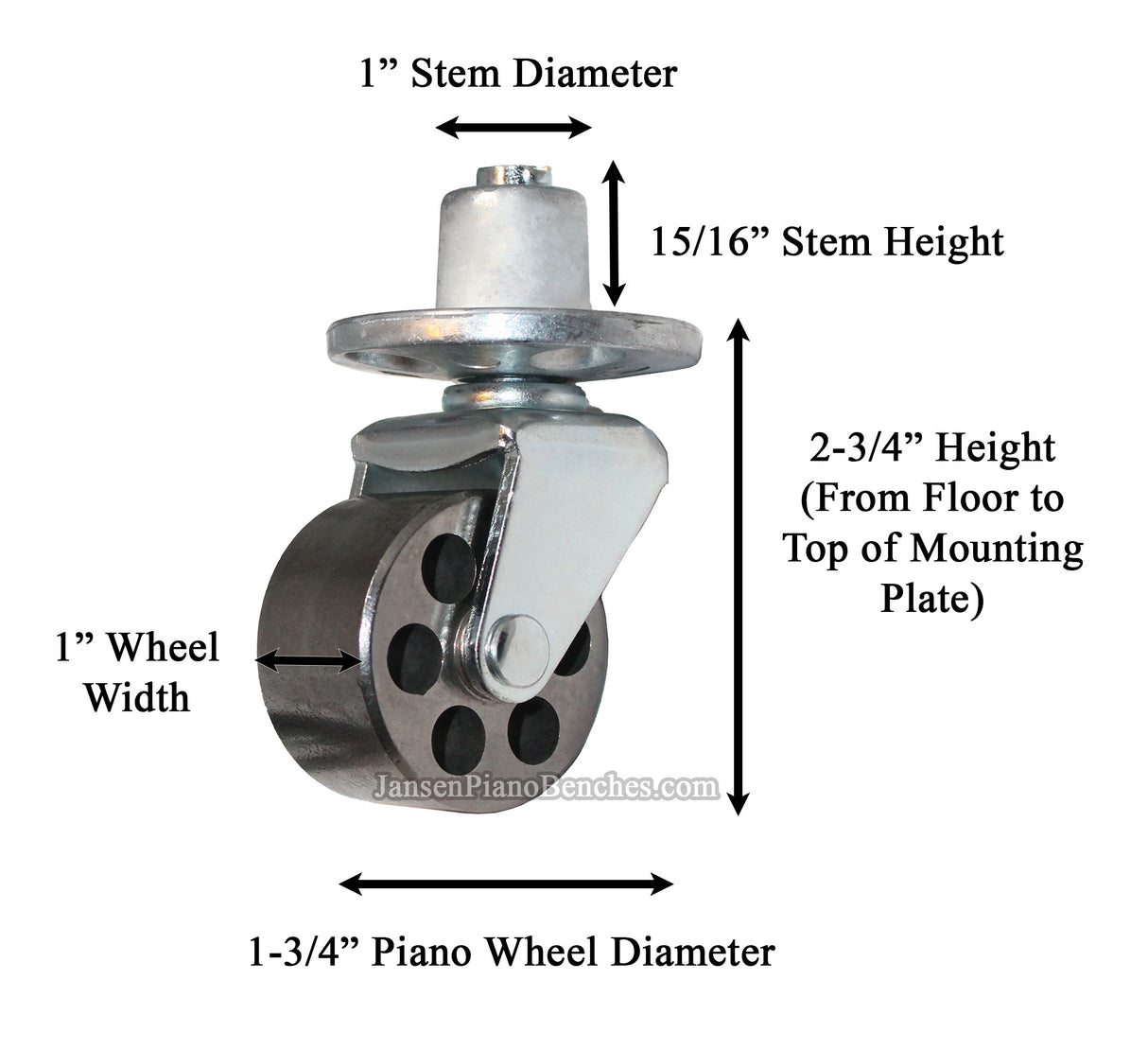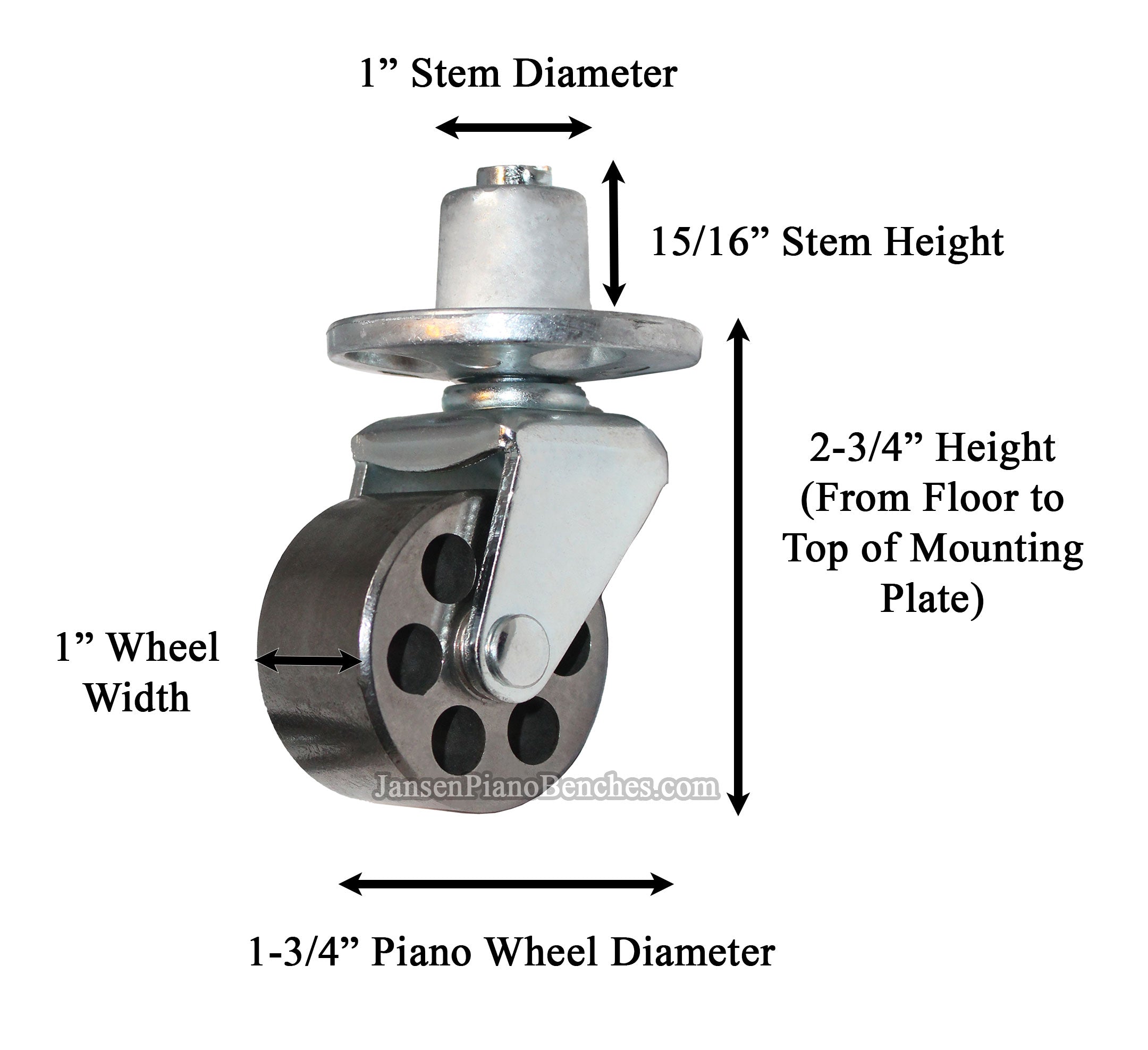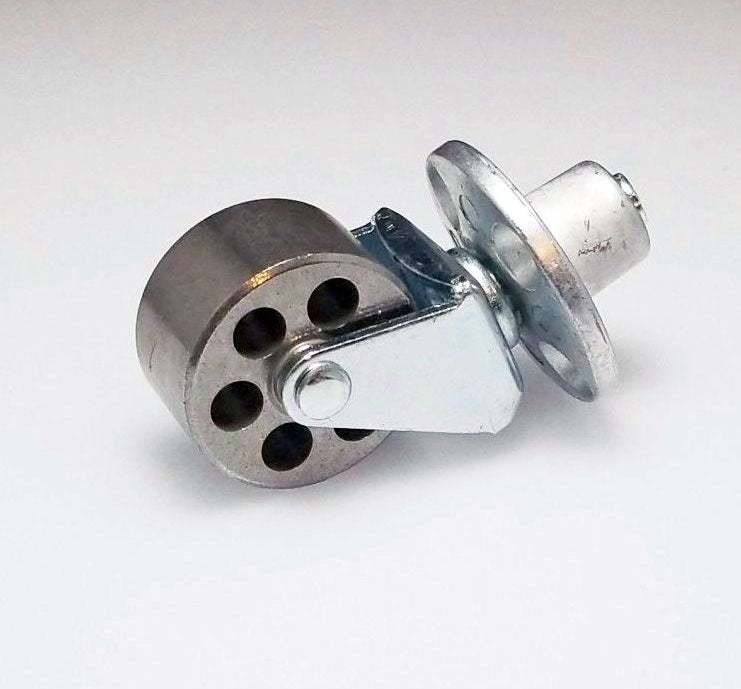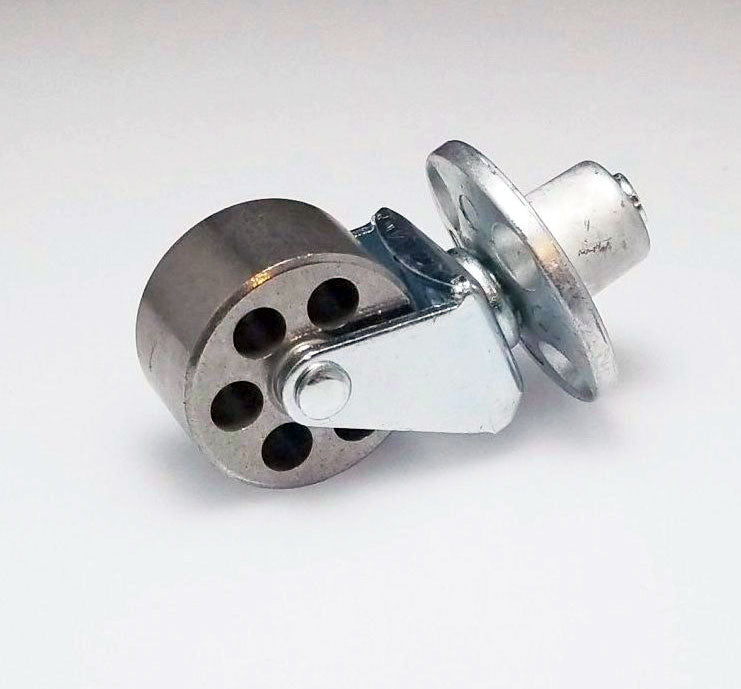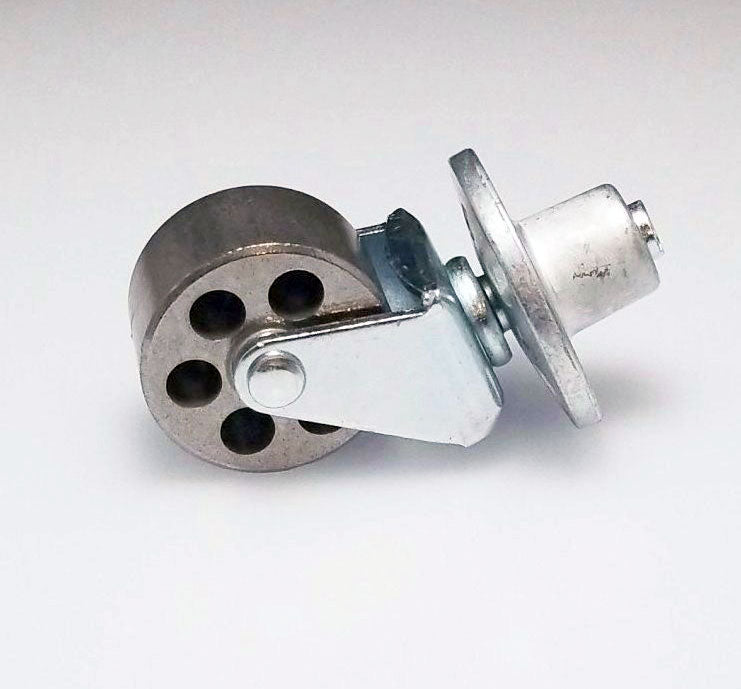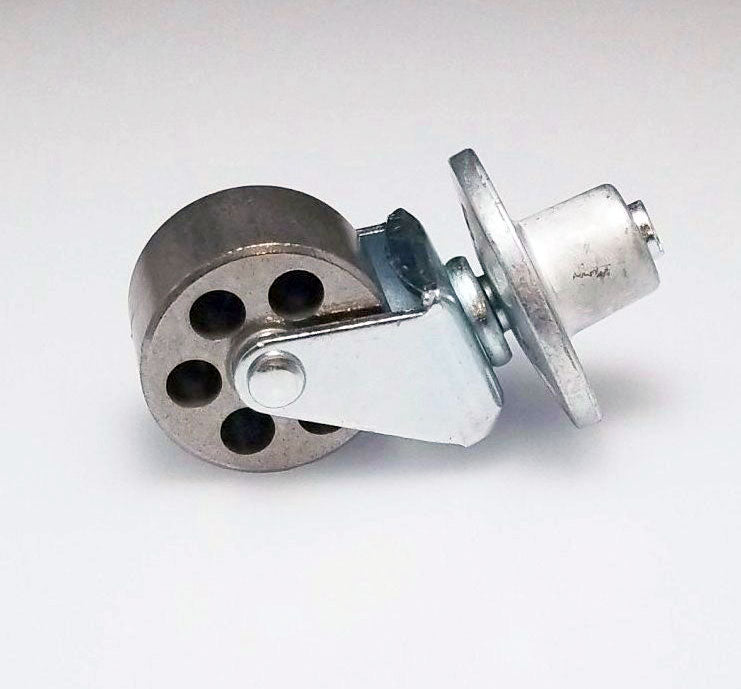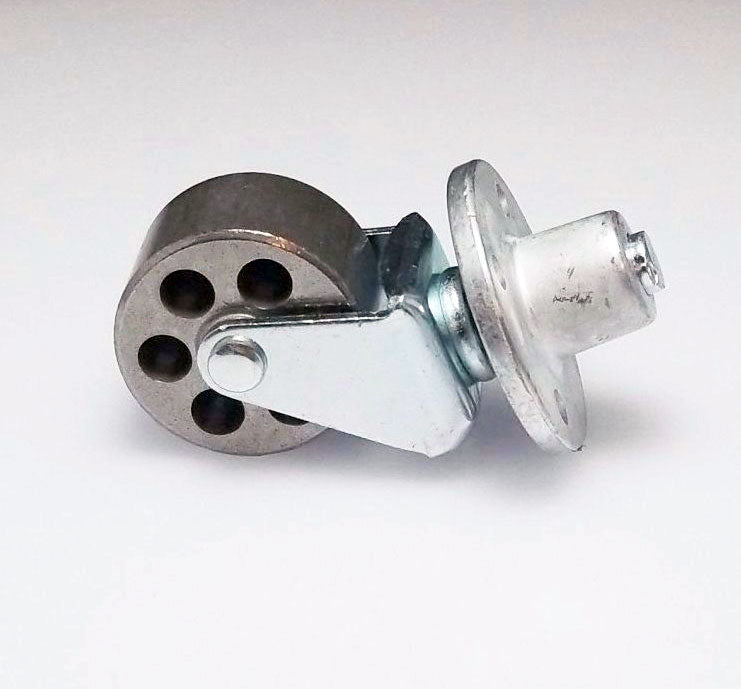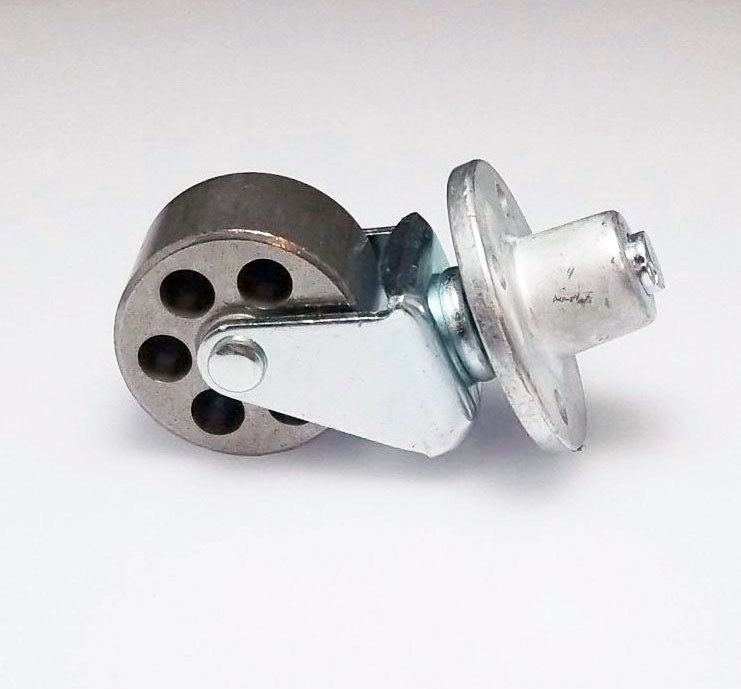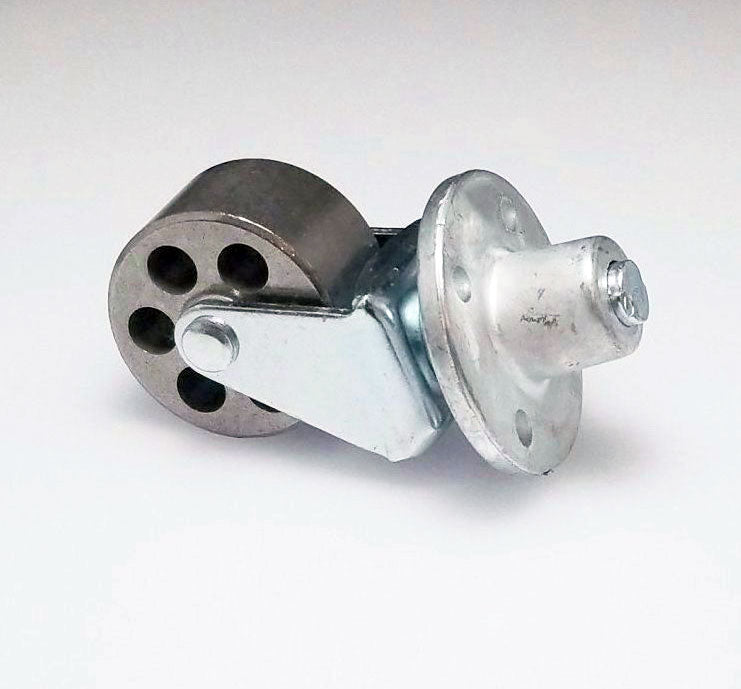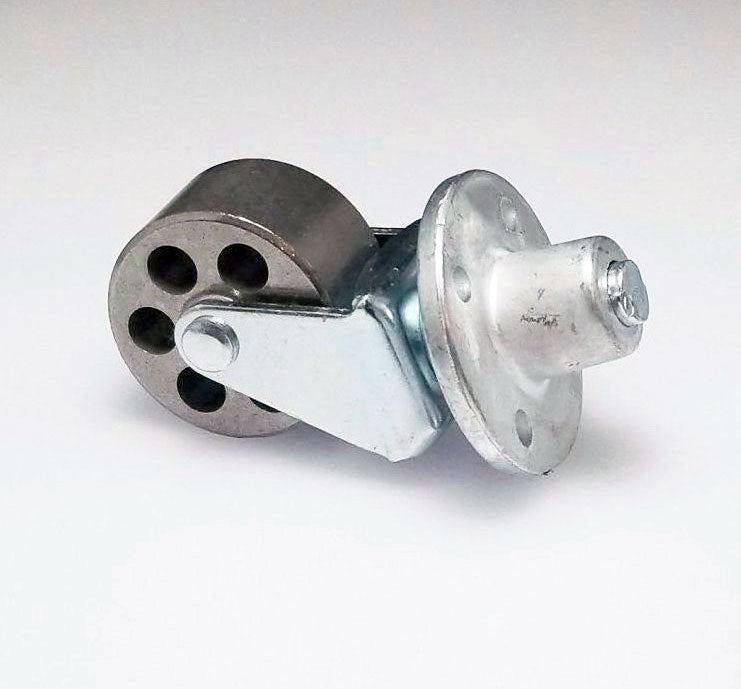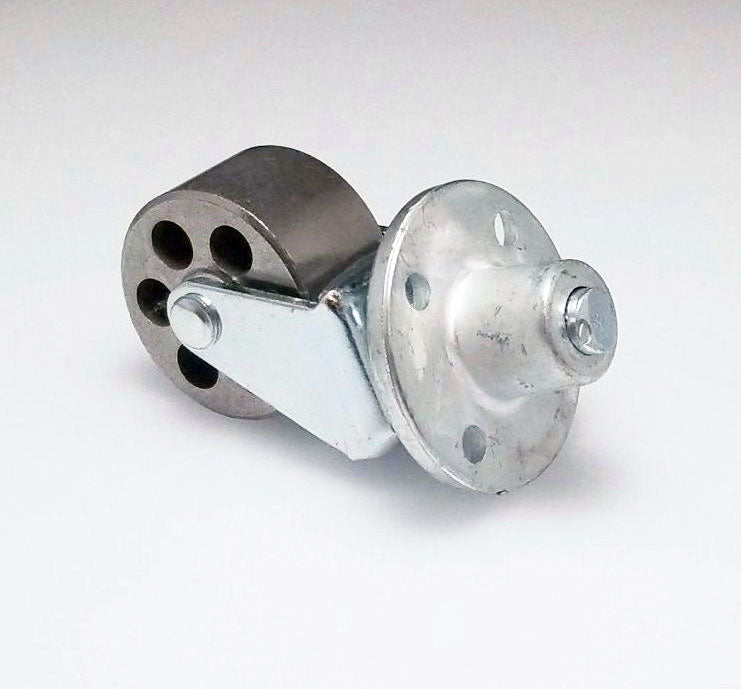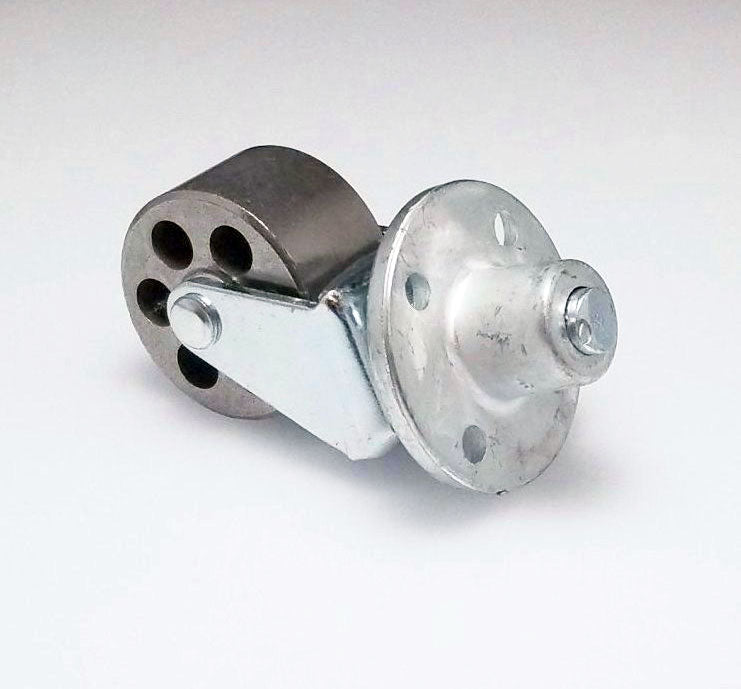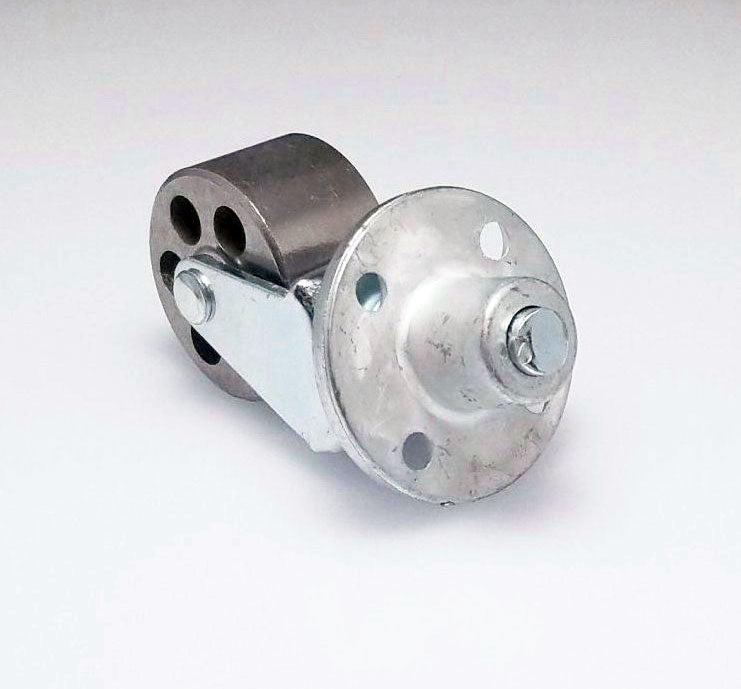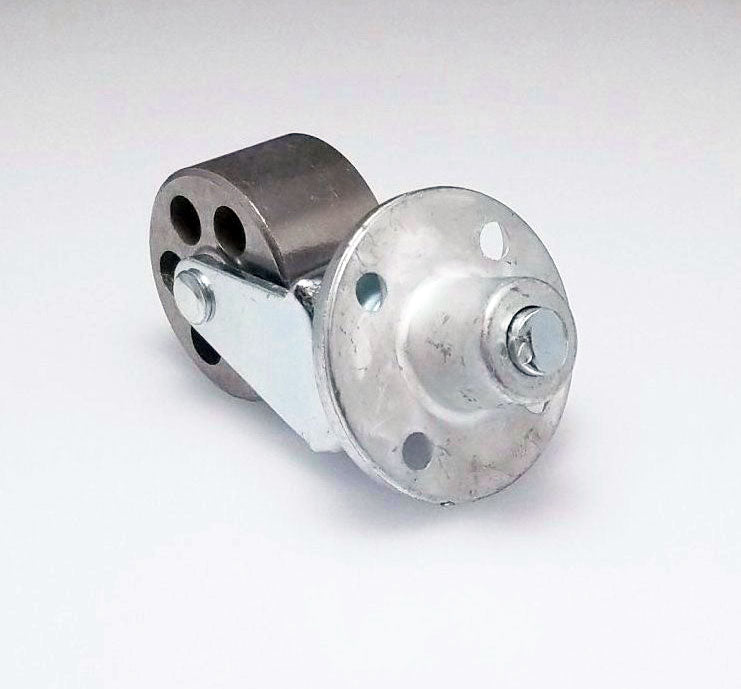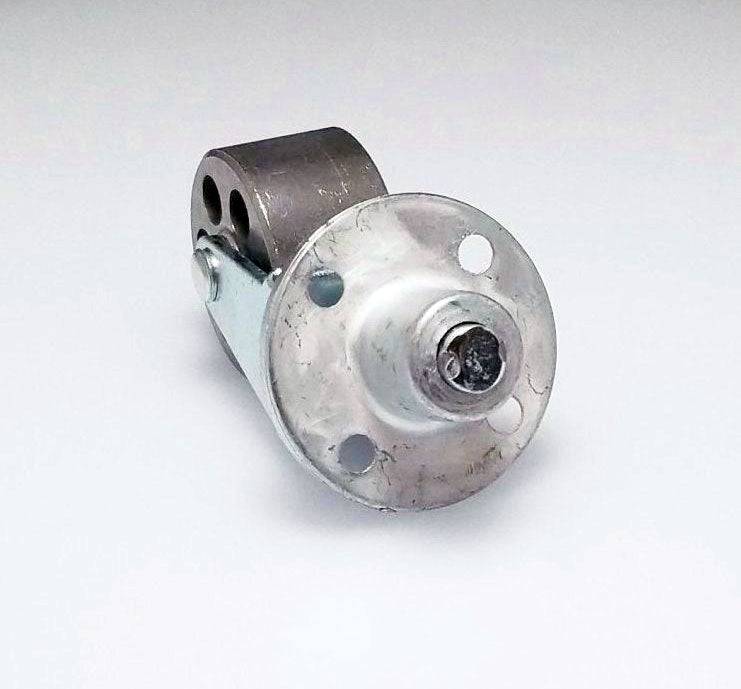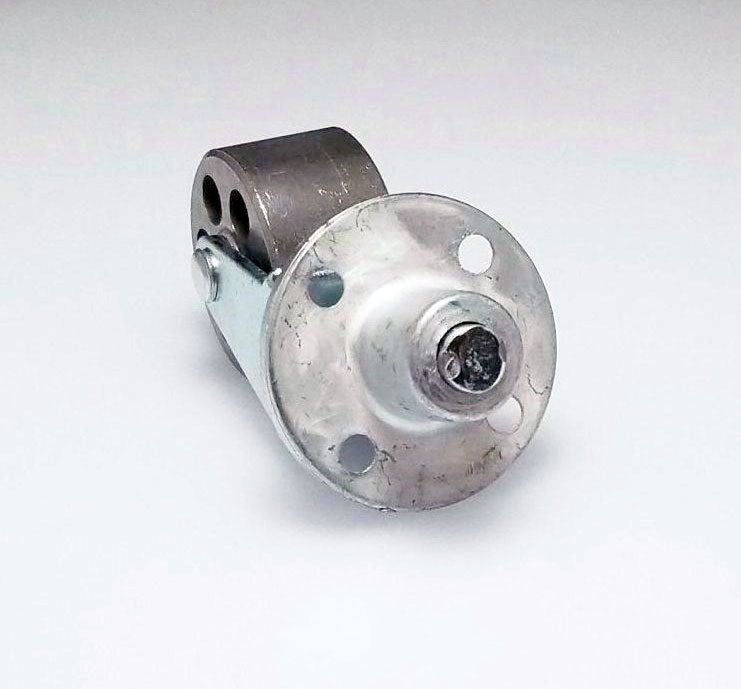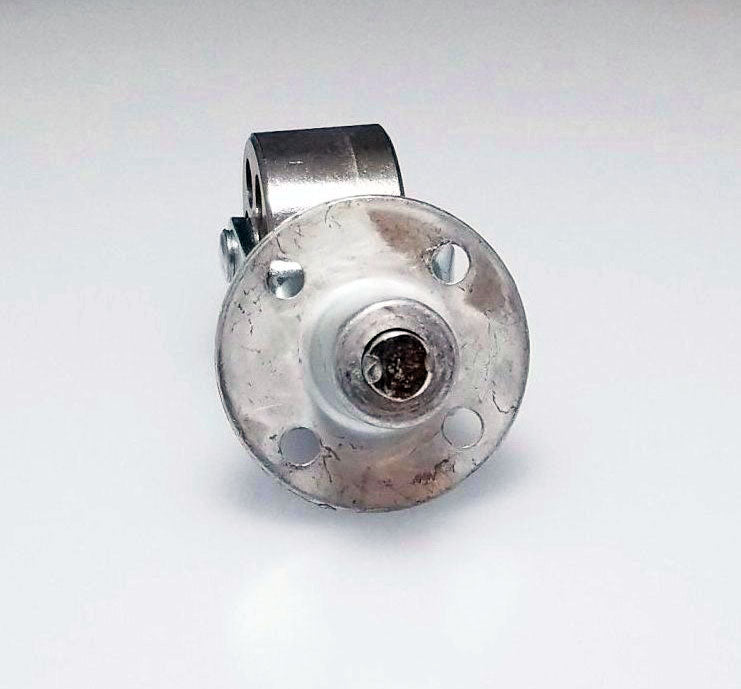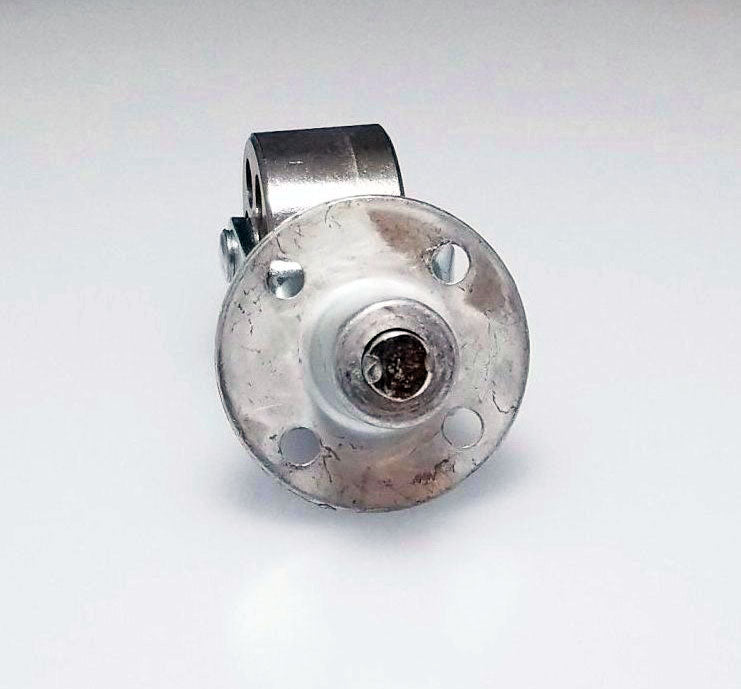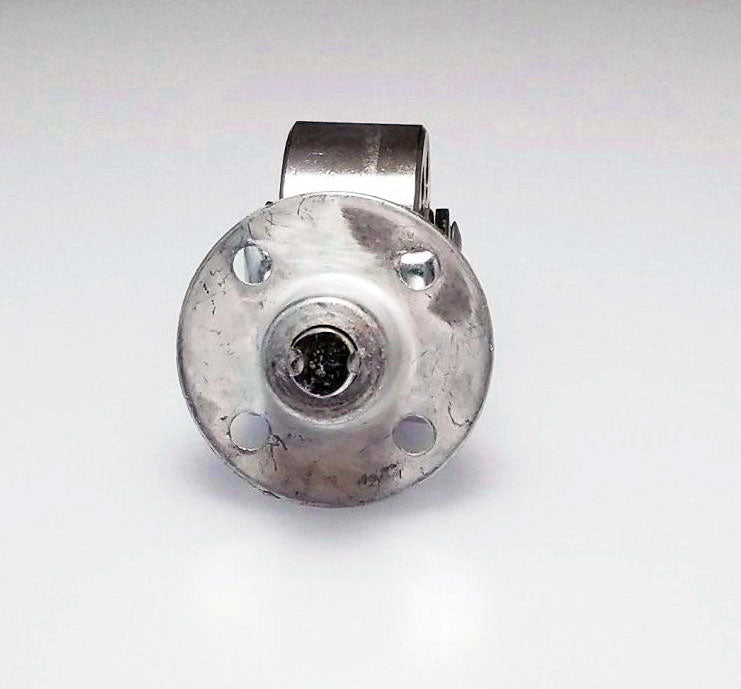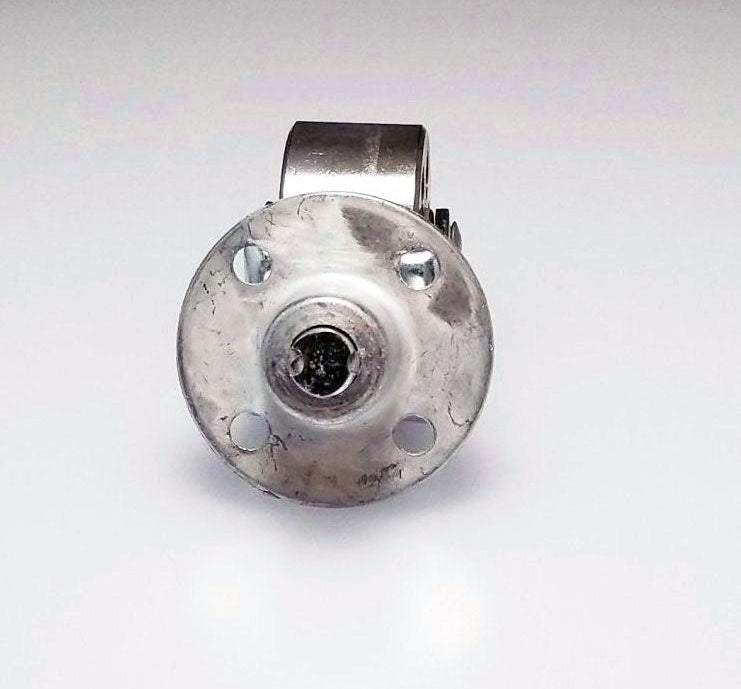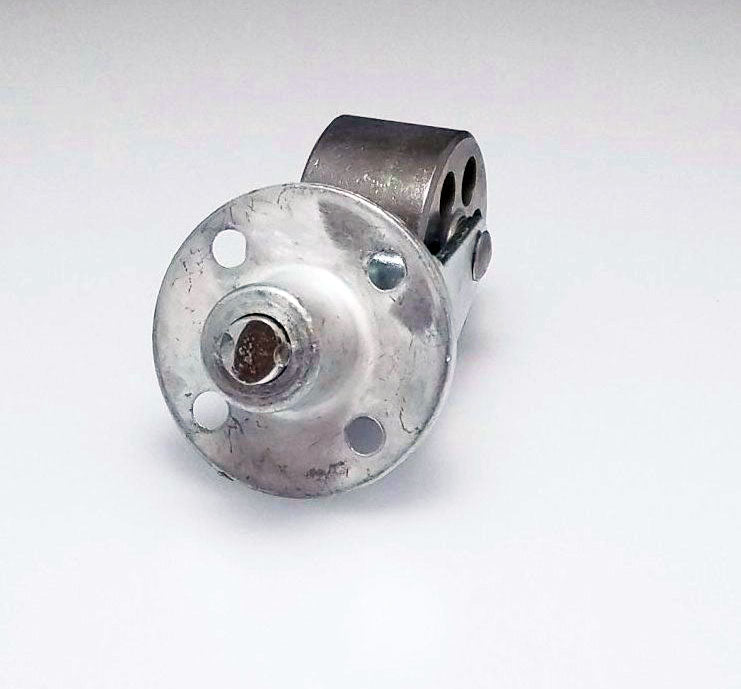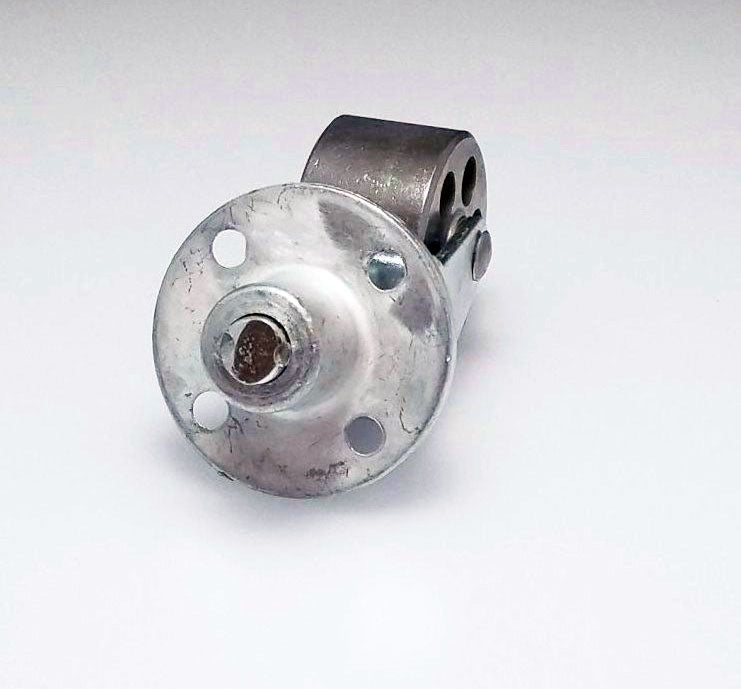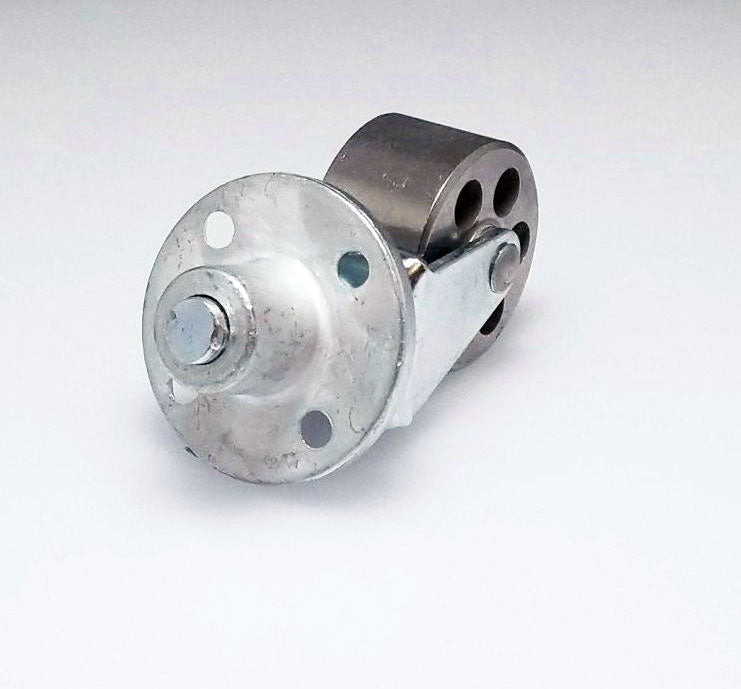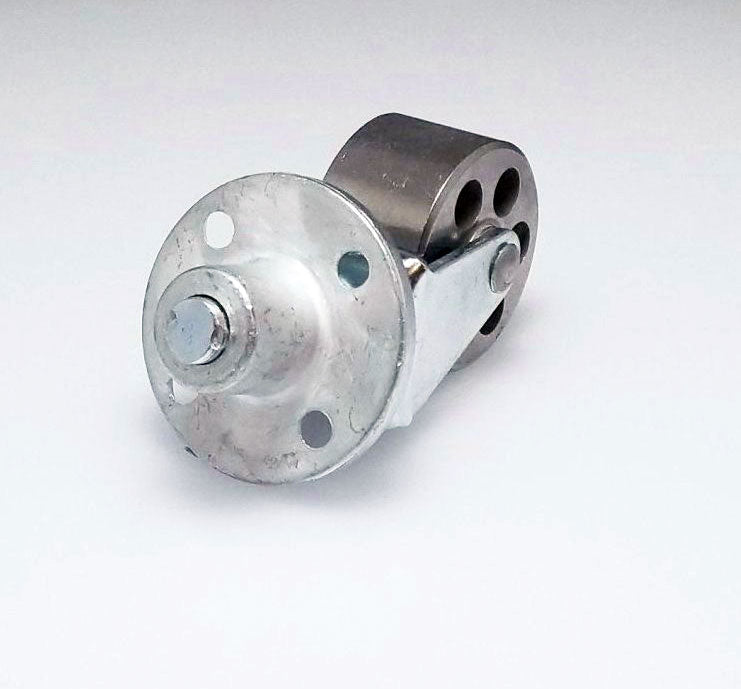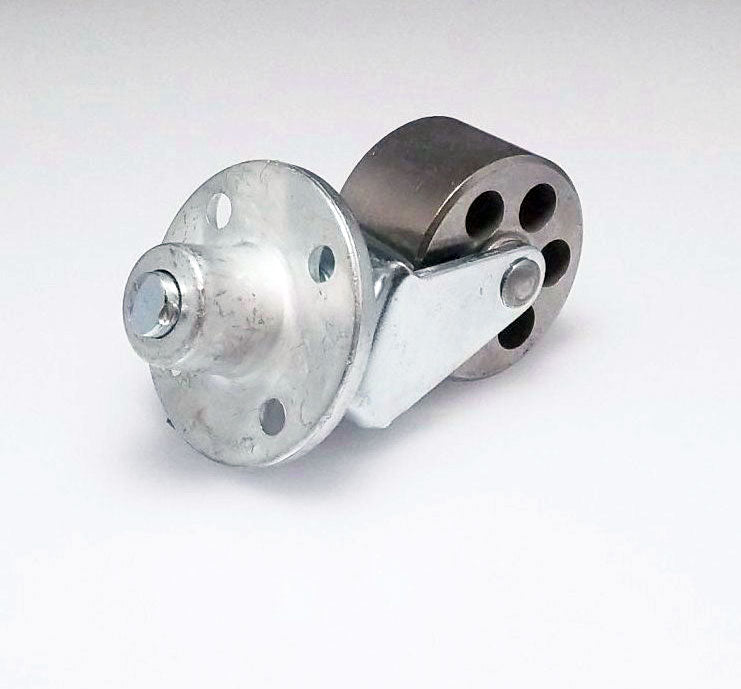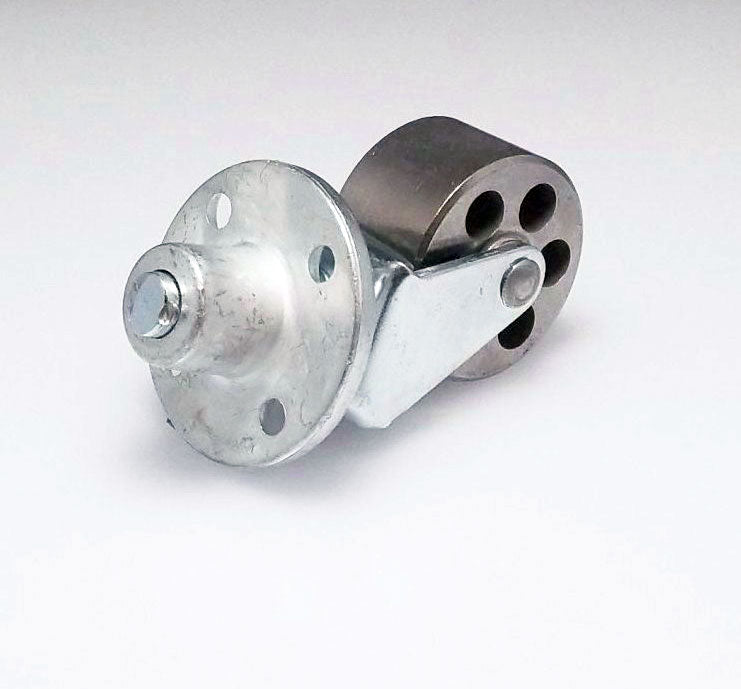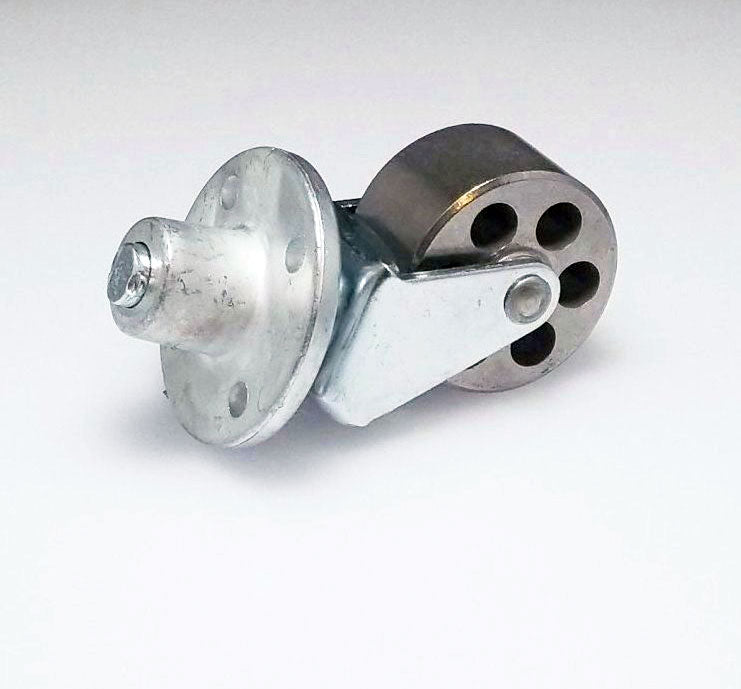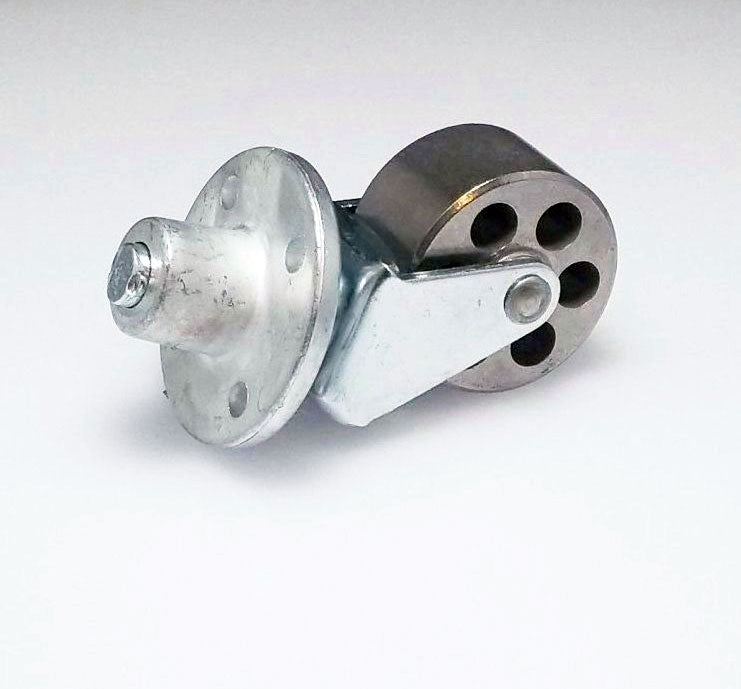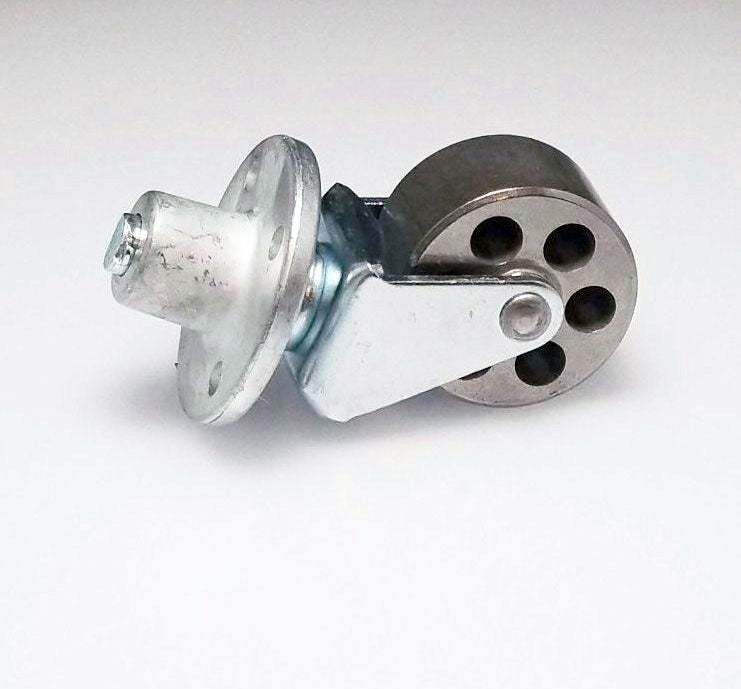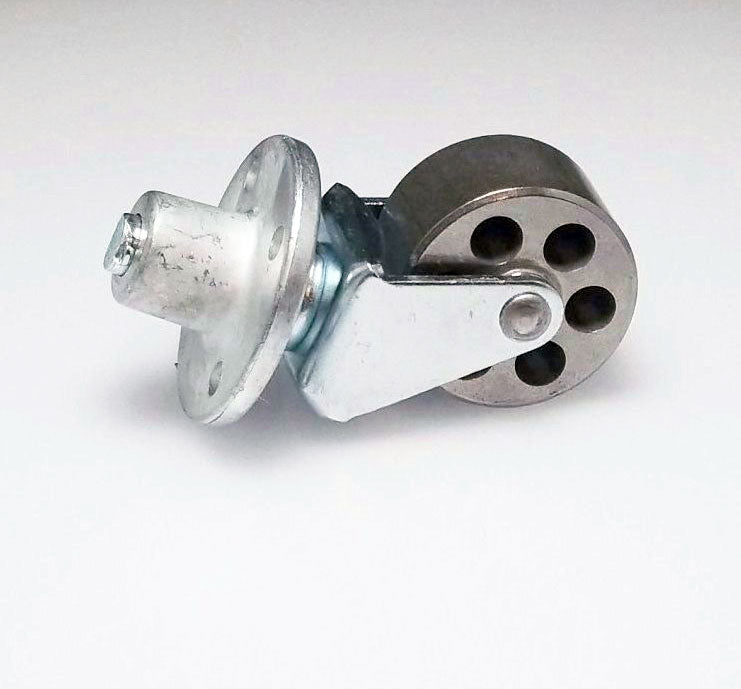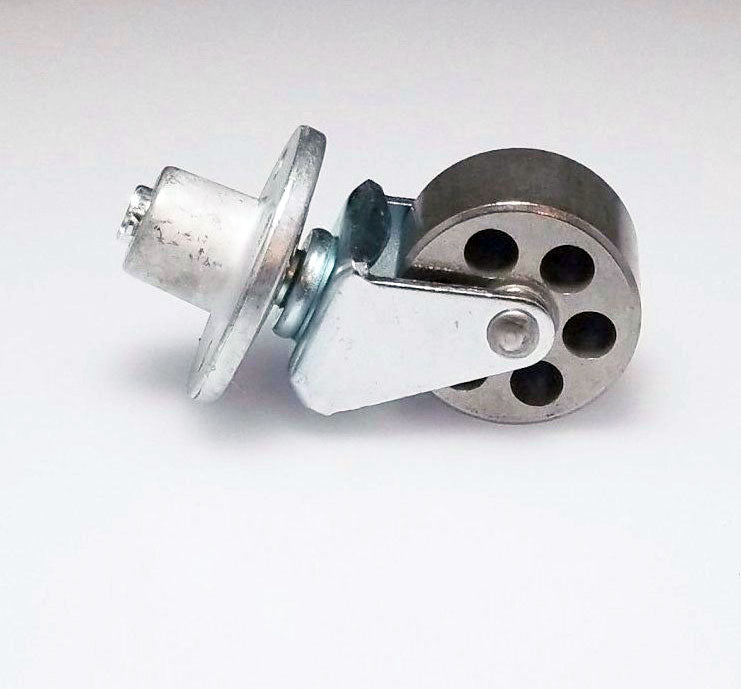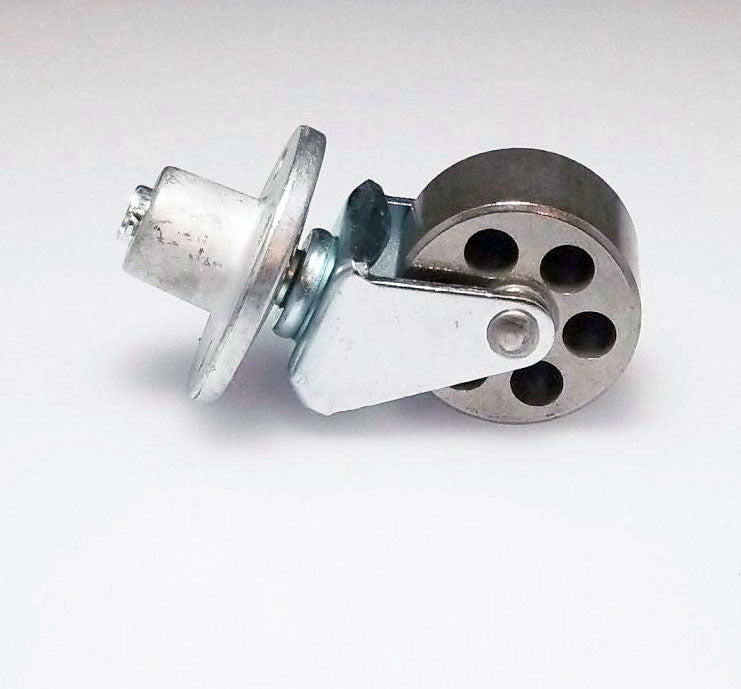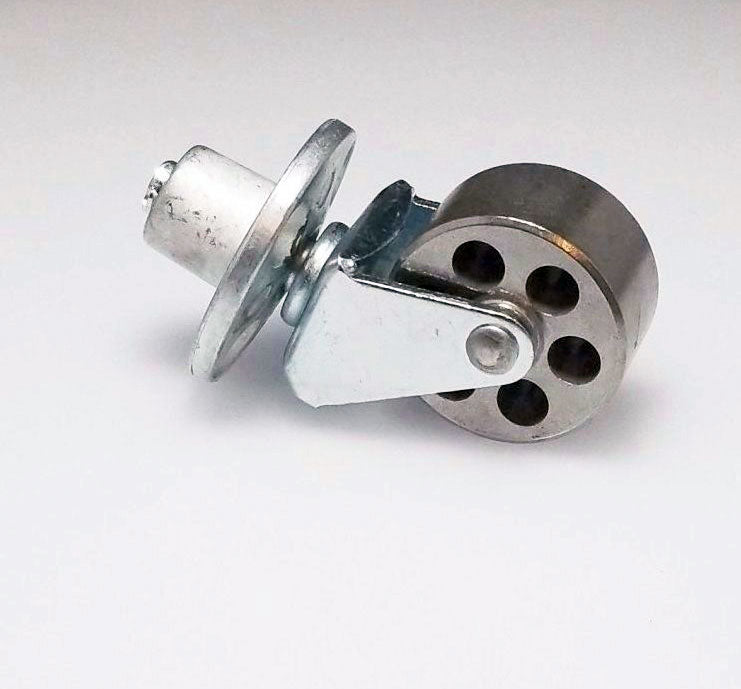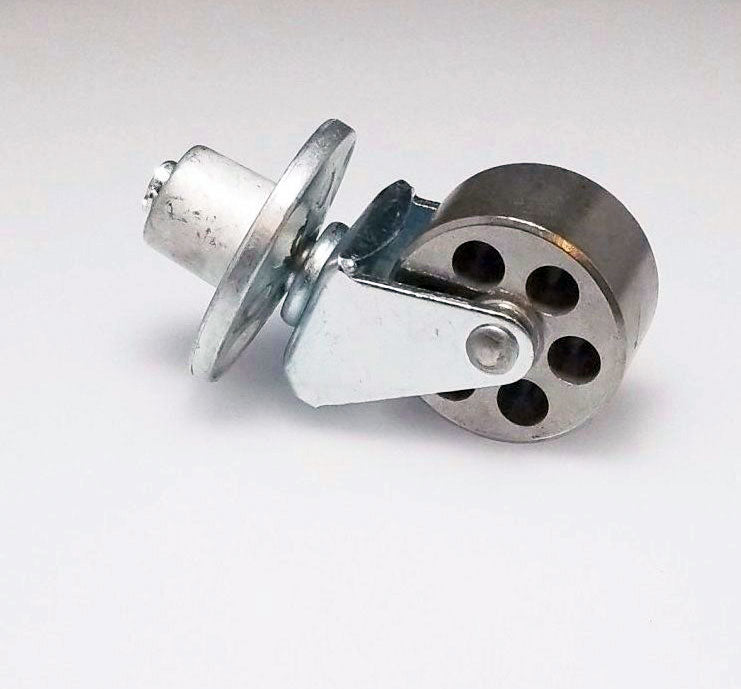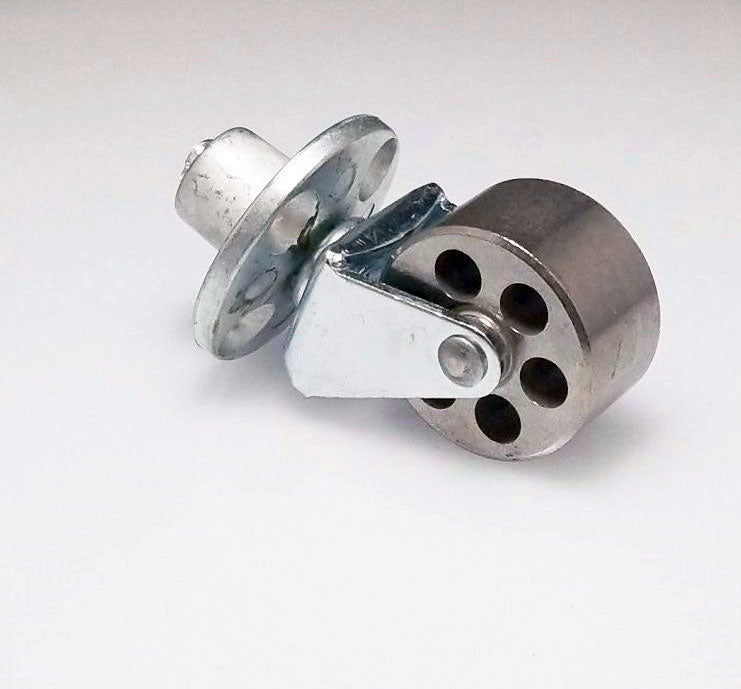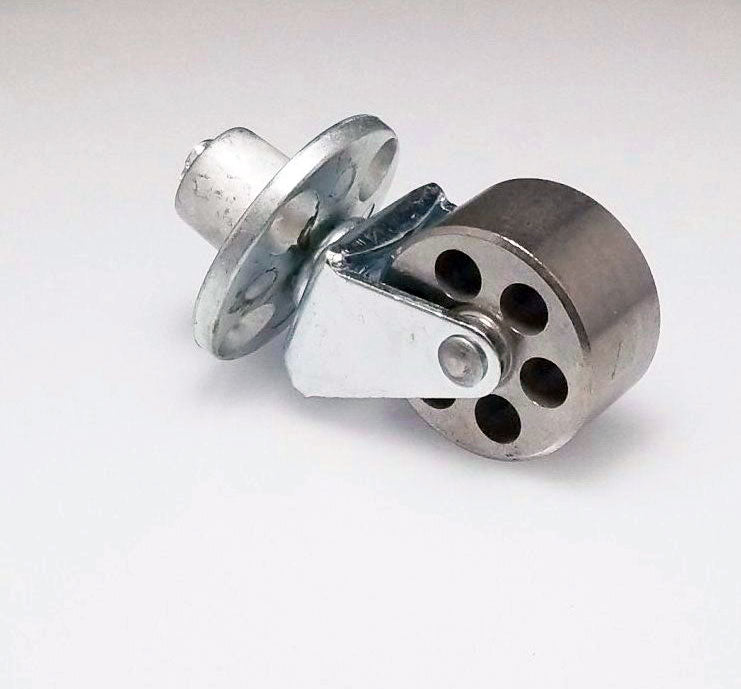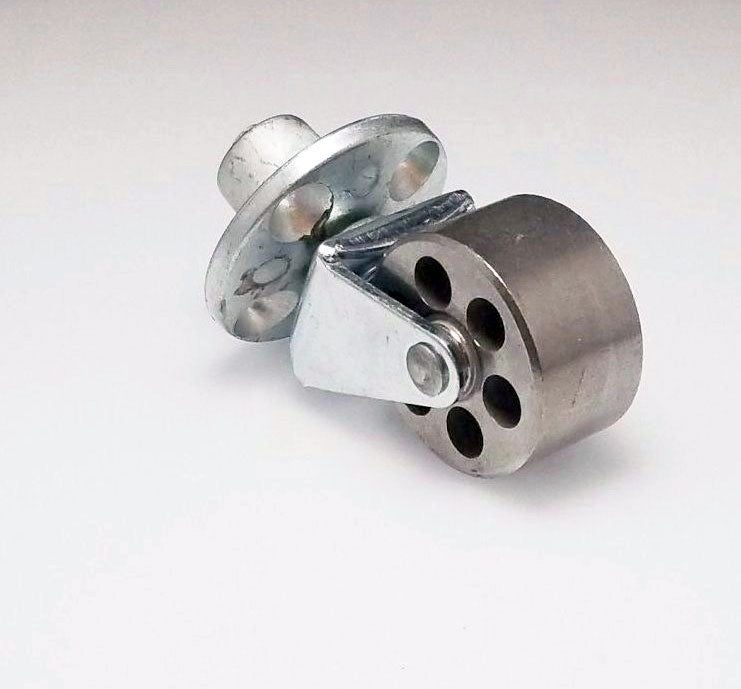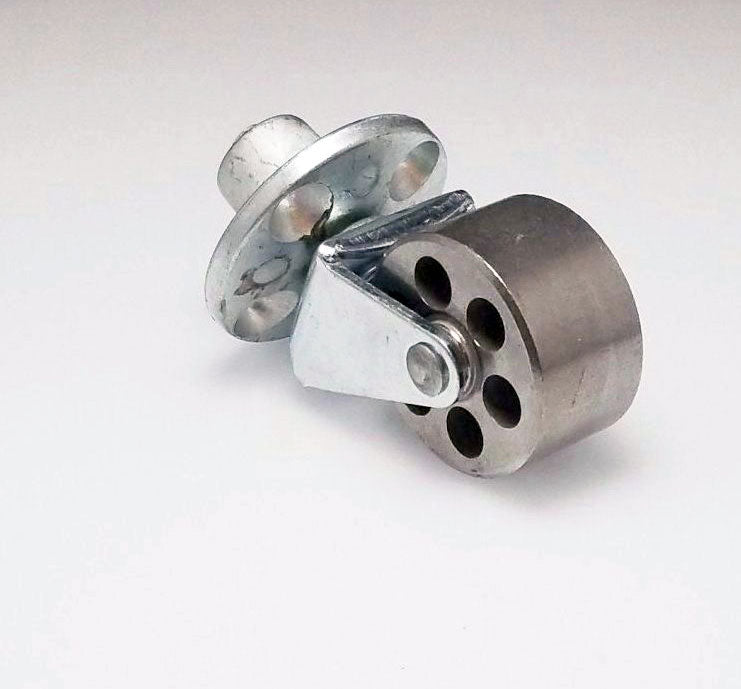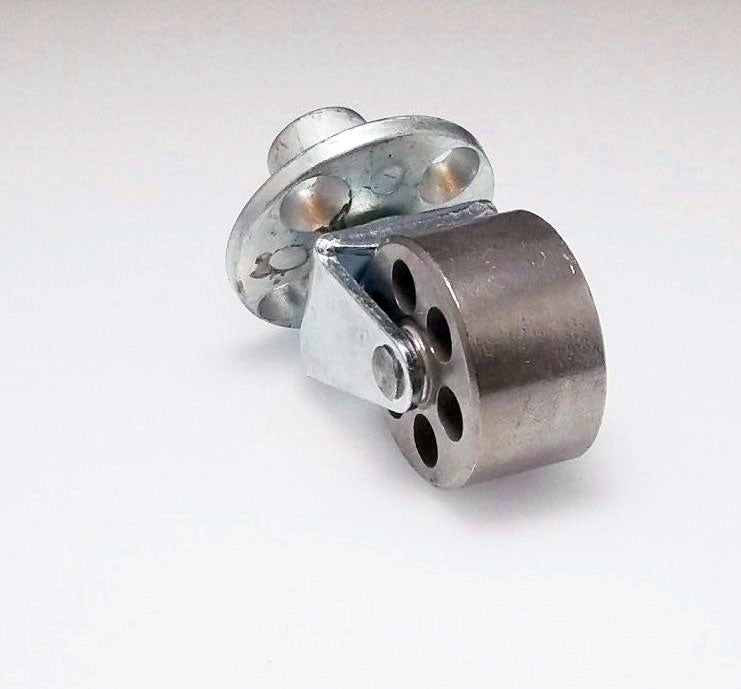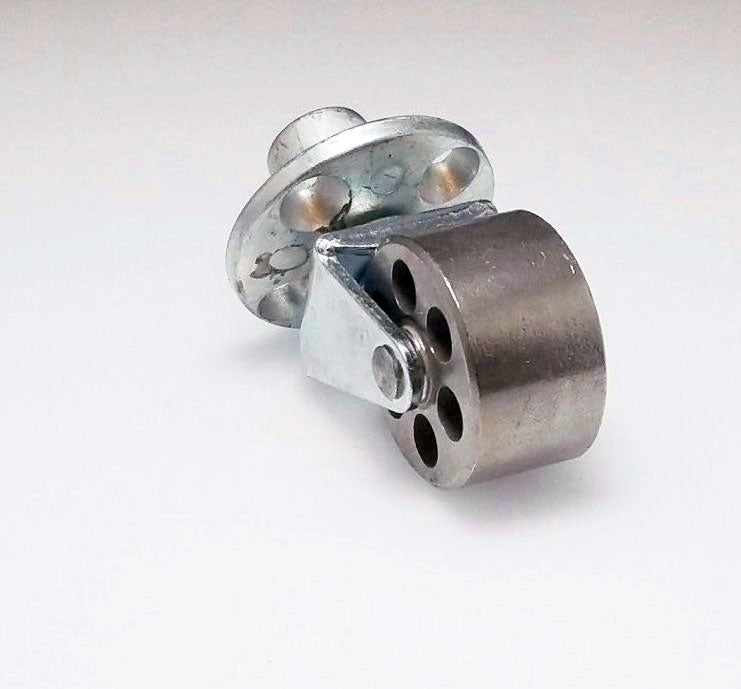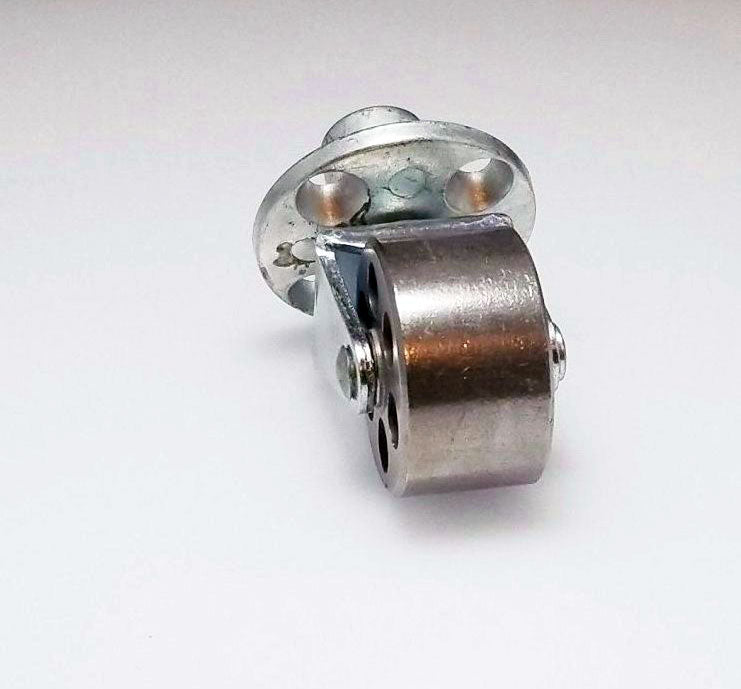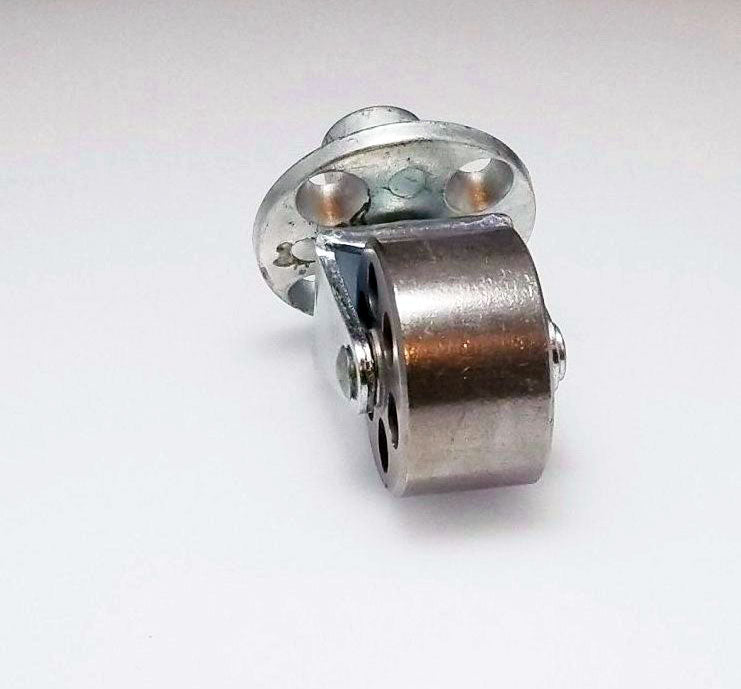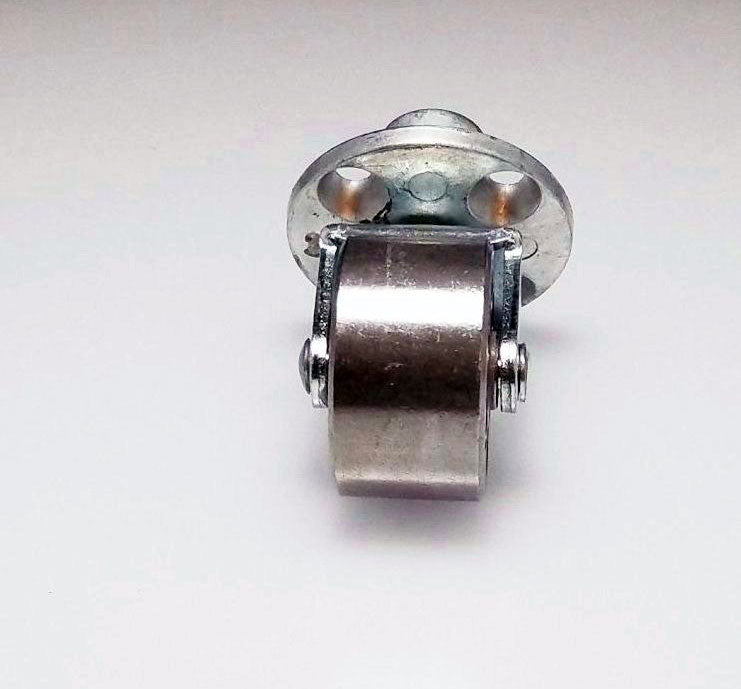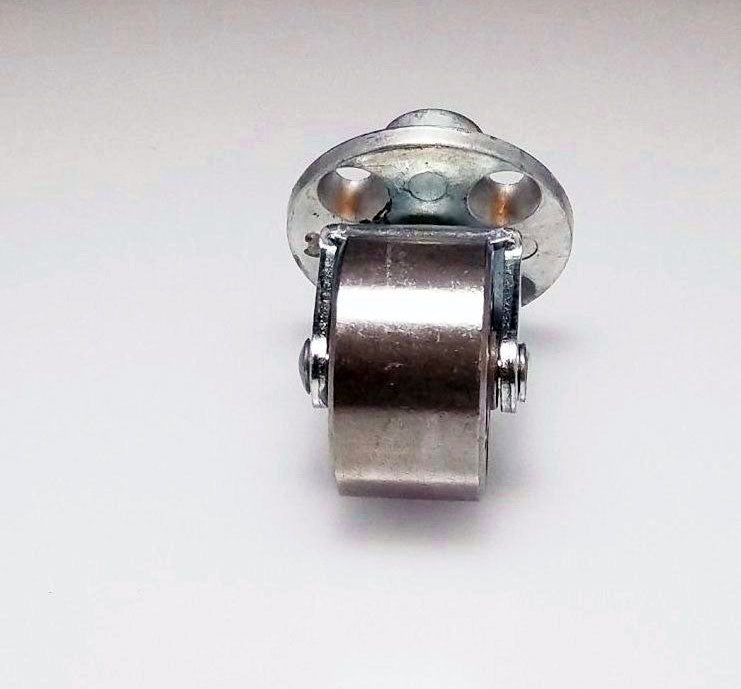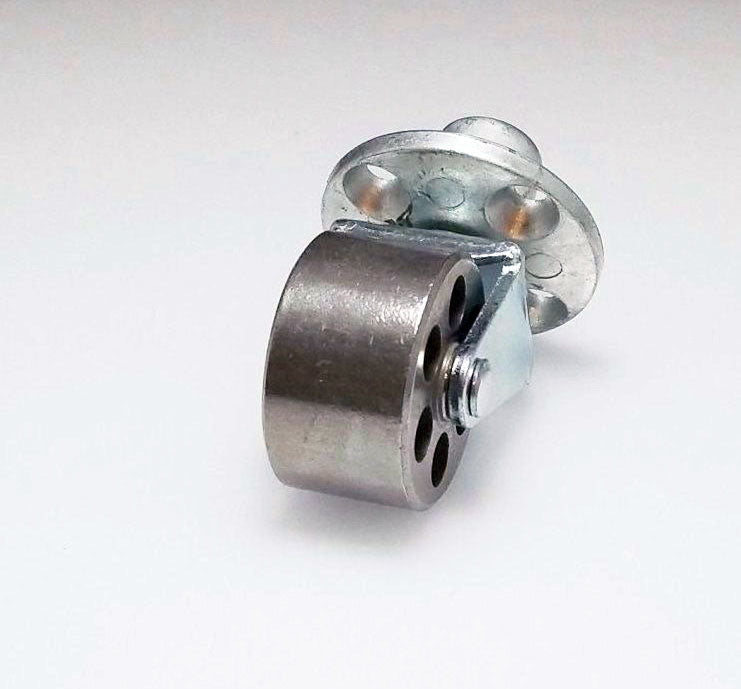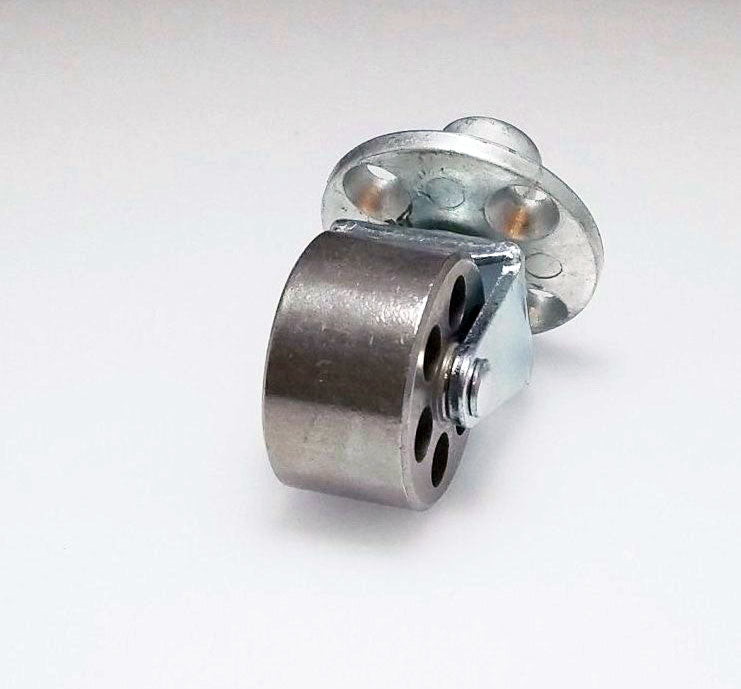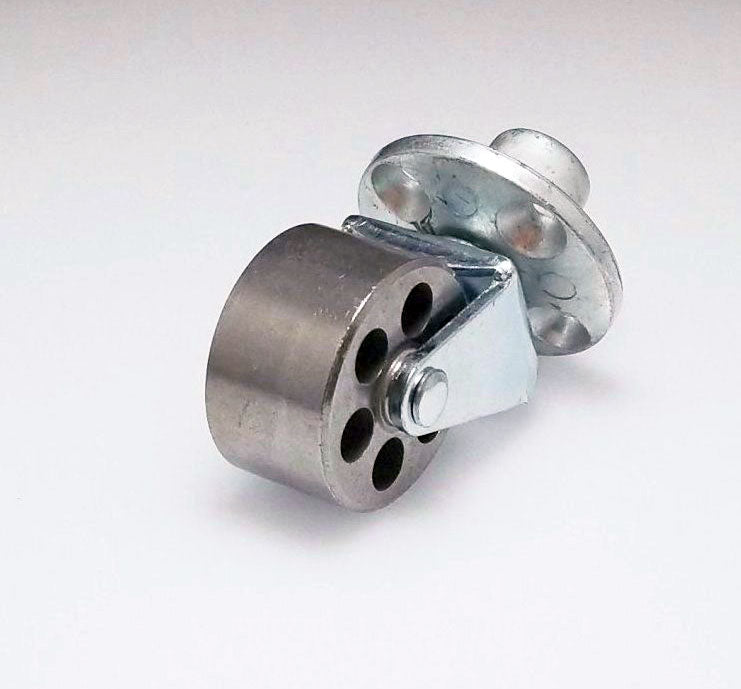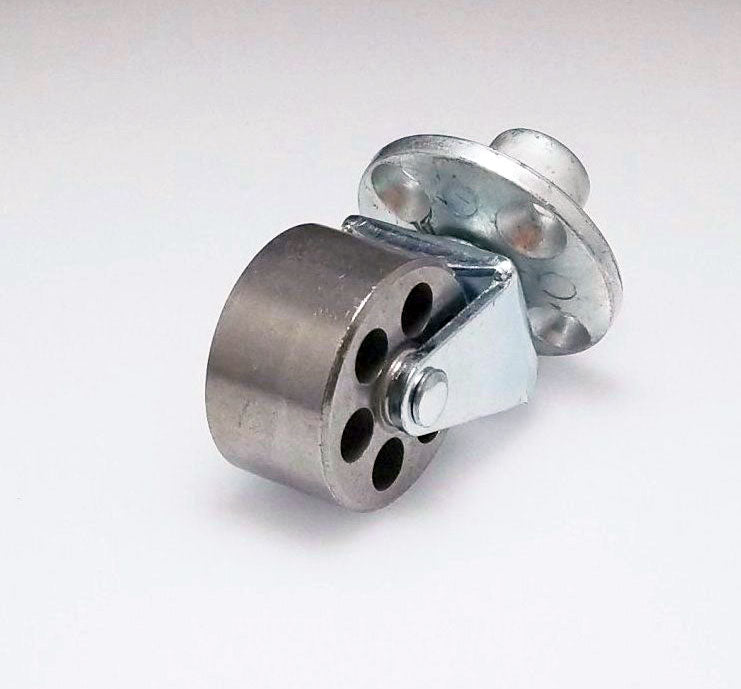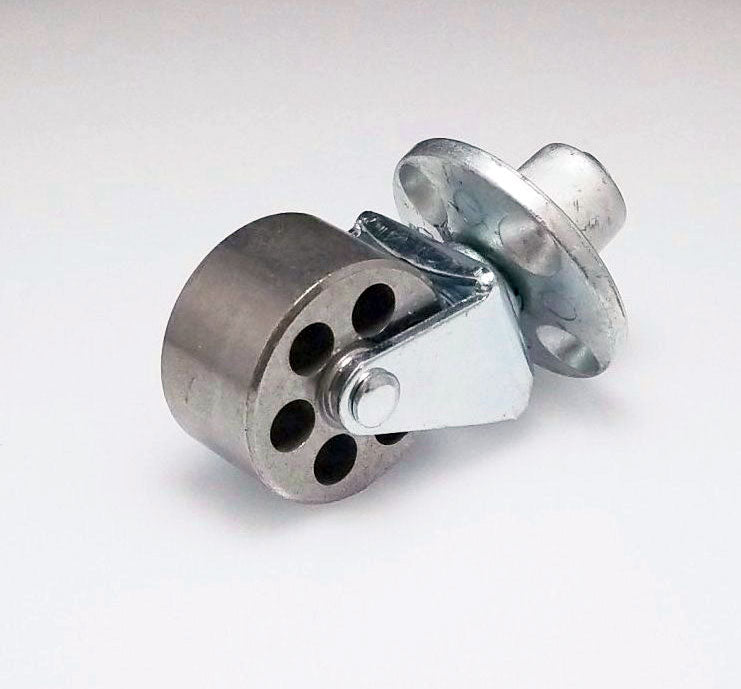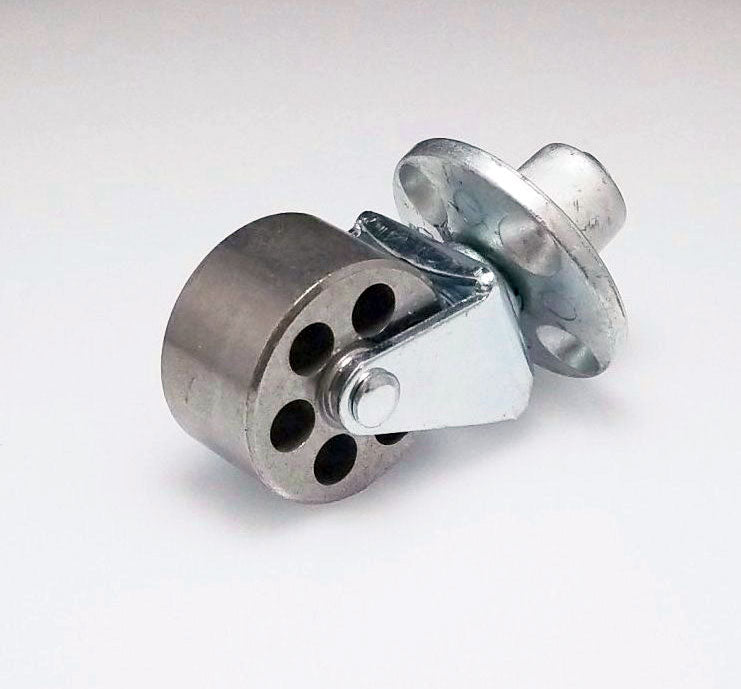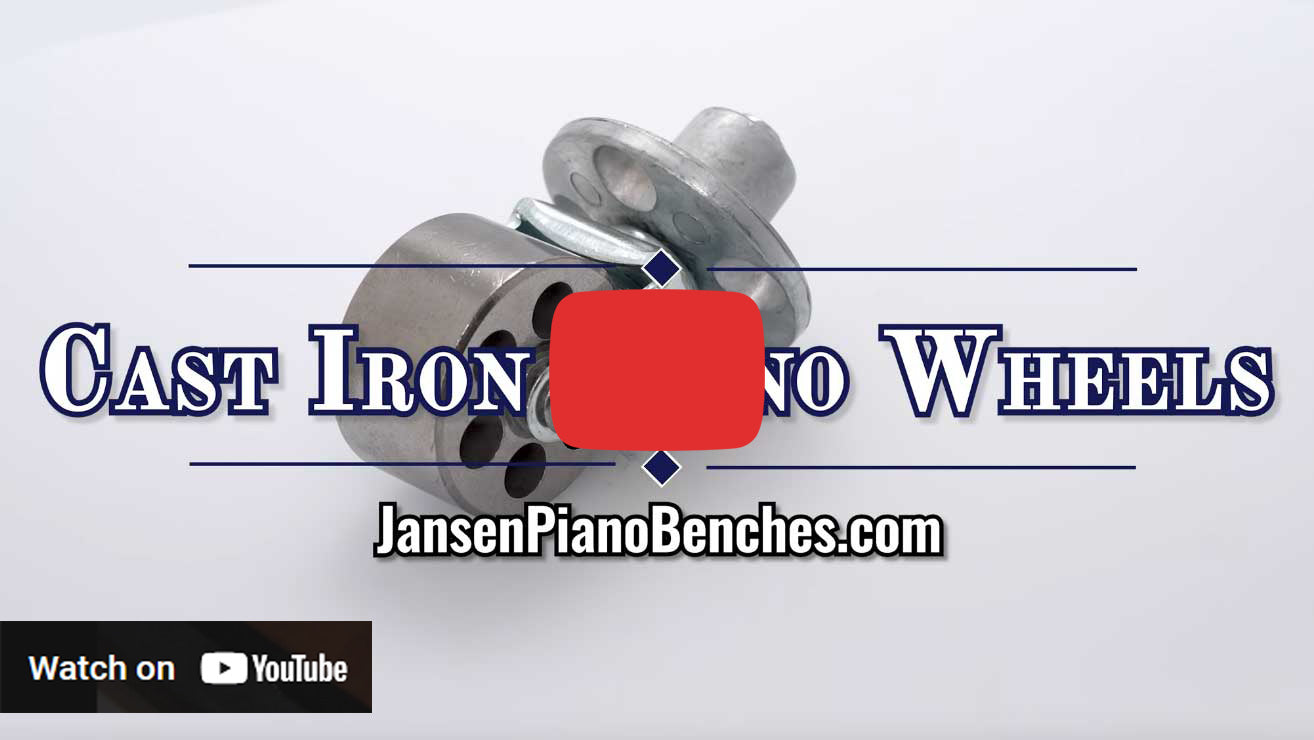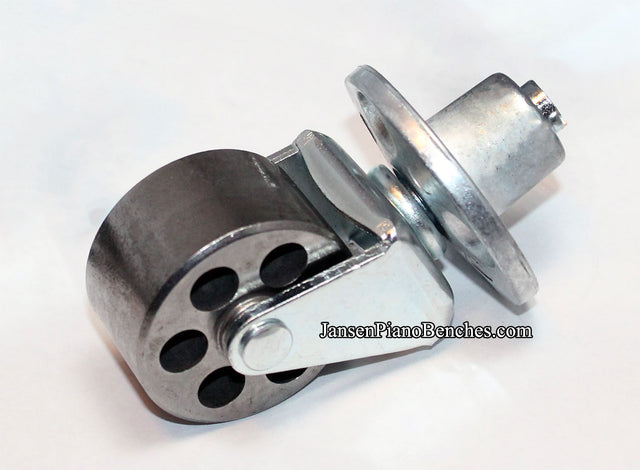Upright Piano Wheels Heavy Duty Cast Iron
Upright Piano Wheels Heavy Duty Cast Iron - Set of 4 Upright Piano Wheels is backordered and will ship as soon as it is back in stock.
Heavy-duty cast iron upright piano wheels with built-in attached sockets, are ideal for heavy upright pianos (especially the extremely heavy uprights from the 1930s and earlier--where rubber wheels will not support the weight of the piano, or there is concern of the rubber breaking down over time). The wheel is 1" wide, and has a diameter of 1-3/4". The round mounting plates are 2-1/8" in diameter, and have four screw holes to attach to your piano. The stem (the part that goes into your piano), is 1" in diameter and 15/16" in height. Our most popular selling metal piano casters, manufactured in the United States.
Set of 4 piano wheels.
Product Specifications:
- Wheel Width: 1"
- Wheel Diameter: 1-3/4"
- Height From Floor to Bottom of Plate: 2-3/4"
- Stem Diameter: 1"
- Stem Height: 15/16"
- Material: Cast Iron
Why Choose Metal Piano Wheels:
- Load-Bearing Capacity: Due to their sturdy construction, metal casters can support heavier loads compared to rubber casters, reducing the risk of failure under the piano's weight.
- Longevity: Metal casters are less prone to wear and tear, ensuring a longer lifespan.
- Temperature and Humidity Resilience: Metal casters are less affected by environmental changes, whereas rubber can harden or become brittle in varying temperatures and humidity levels.
Free Shipping:
-
Piano Wheel Type
-
Wheel Diameter
-
Instrument CompatibilityUpright Piano
-
Wheel MaterialCast Iron
-
Country of Origin
-
Color
Best Heavy-Duty Piano Casters for Uprights – Industrial Cast Iron Design
Frequently Asked Questions
When should you use cast iron piano wheels?
When should you use cast iron piano wheels?
Are cast iron piano casters stronger than rubber wheels?
Are cast iron piano casters stronger than rubber wheels?
What type of piano wheels are best for hardwood floors?
What type of piano wheels are best for hardwood floors?
Rubber piano wheels are ideal for hardwood floors. They provide smooth movement and minimize the risk of scratches or dents. With larger, heavier pianos, brass wheels, while durable, can damage some wood floors unless used with protective caster cups.
What are the advantages of cast iron piano wheels?
What are the advantages of cast iron piano wheels?
Will these piano casters fit my piano?
Will these piano casters fit my piano?
Every piano is a little different, and unfortunately, there's no universal database that matches caster sizes to specific piano models. However, we provide detailed specifications for each product — including stem diameter, stem length, and wheel size — so you can measure your piano’s existing mounting holes and compare.
If your piano’s leg socket is slightly smaller than the stem, you may need to carefully widen the hole to fit. In most cases, installation is straightforward.
Are these cast iron wheels compatible with all upright pianos?
Are these cast iron wheels compatible with all upright pianos?
How to choose the right piano casters
How to choose the right piano casters
Choosing the right piano casters depends on your piano type, flooring, and how often you move the instrument. Here are five key factors to consider:
- Piano Type – Upright pianos use 4 casters, while grand pianos use 3.
- Floor Type – Rubber casters are best for hardwood and tile. Brass wheels should be paired with caster cups to prevent floor damage.
- Weight Capacity – Match the wheels to your piano’s weight. Most range from 120 to 300 lbs per wheel.
- Mobility Needs – If you move your piano often or over longer distances, double rubber wheels with ball-bearings provide smoother, safer transport.
- Usage Frequency – For schools, churches, or stage pianos that get repositioned often, choose heavy-duty rubber wheels designed for frequent movement.
Should I get rubber or brass piano casters?
Should I get rubber or brass piano casters?
It depends on your floor type and how often you move your piano. Rubber casters are the better choice for hardwood, tile, or laminate flooring — they offer smoother, easier movement while protecting against scratches and dents. Brass casters are more traditional and visually elegant, and are the ultimate aesthetic accessory for a piano.
For most homes, churches and schools, rubber wheels are the safer, more floor-friendly option. If you want the classic brass look, consider pairing them with caster cups to protect your floor.
Can piano wheels be used on carpet or tile?
Can piano wheels be used on carpet or tile?
Yes, both rubber and brass piano wheels work on carpet or tile. Rubber wheels offer smoother movement and better grip on tile, while brass wheels roll well on carpet but may leave indentations without proper weight distribution

